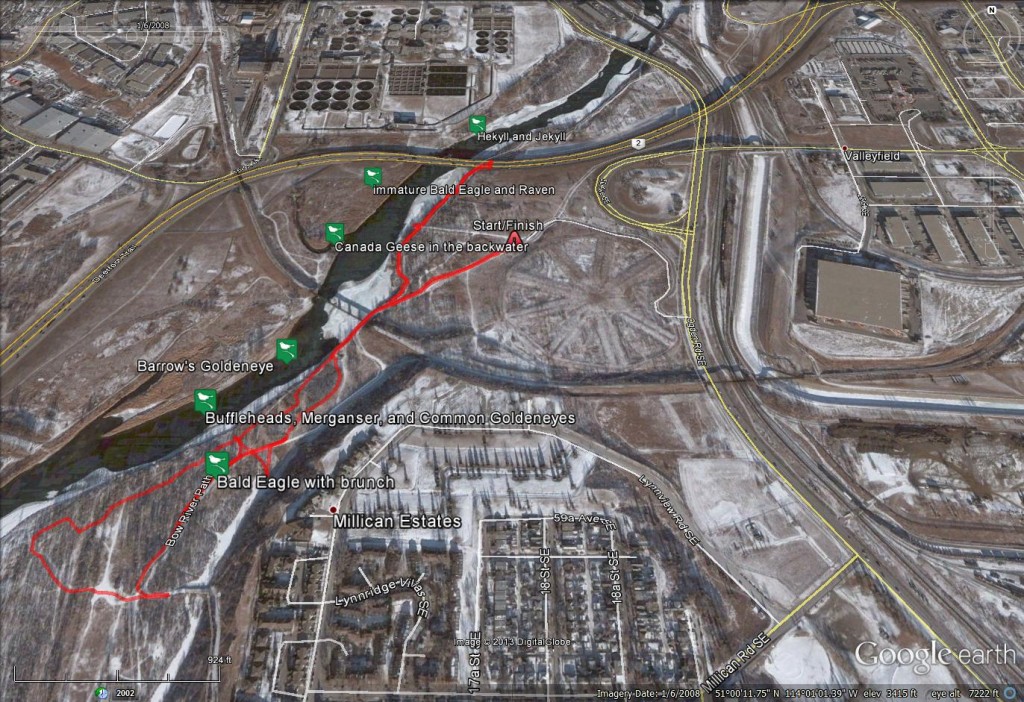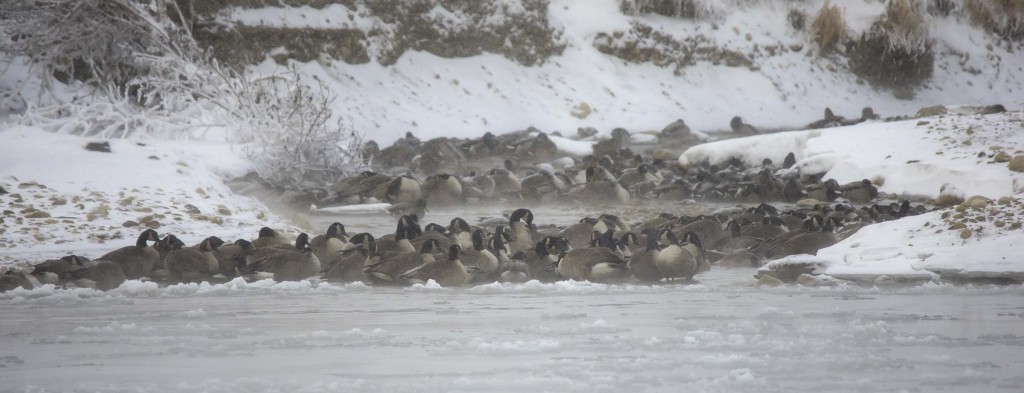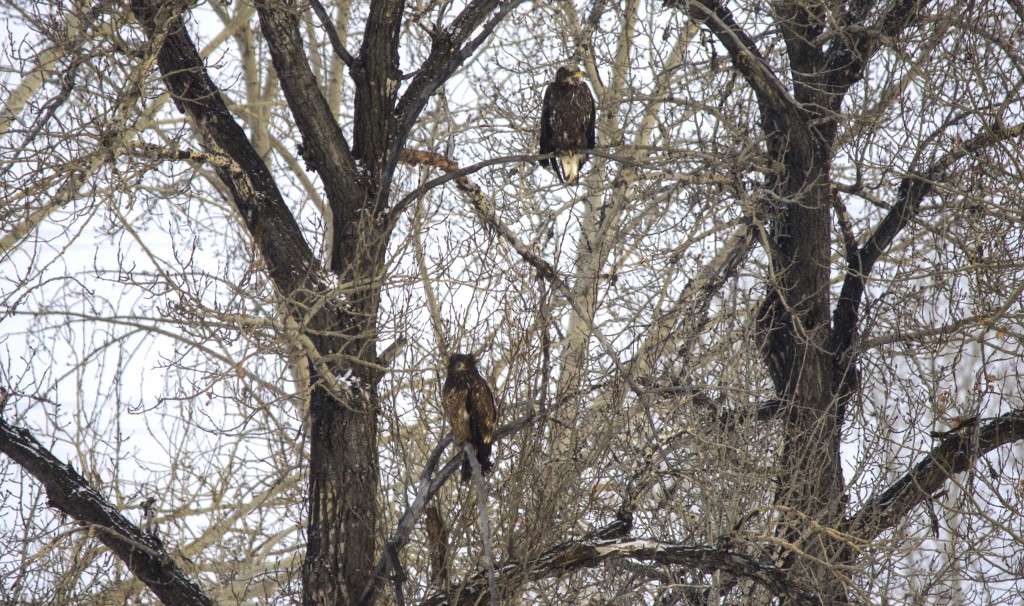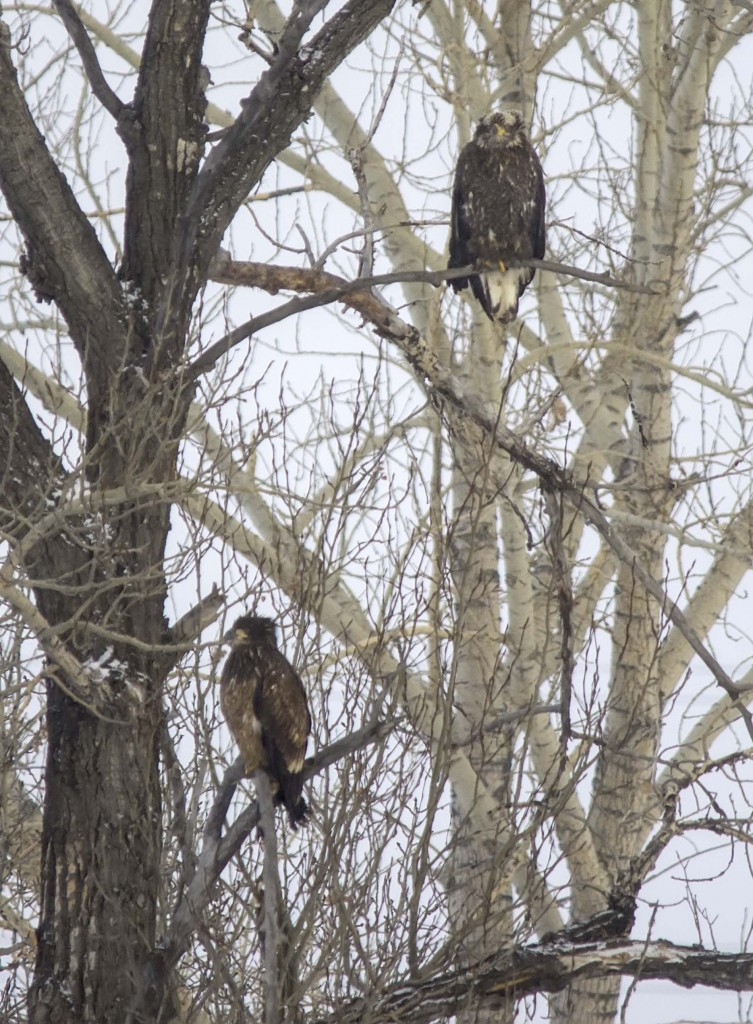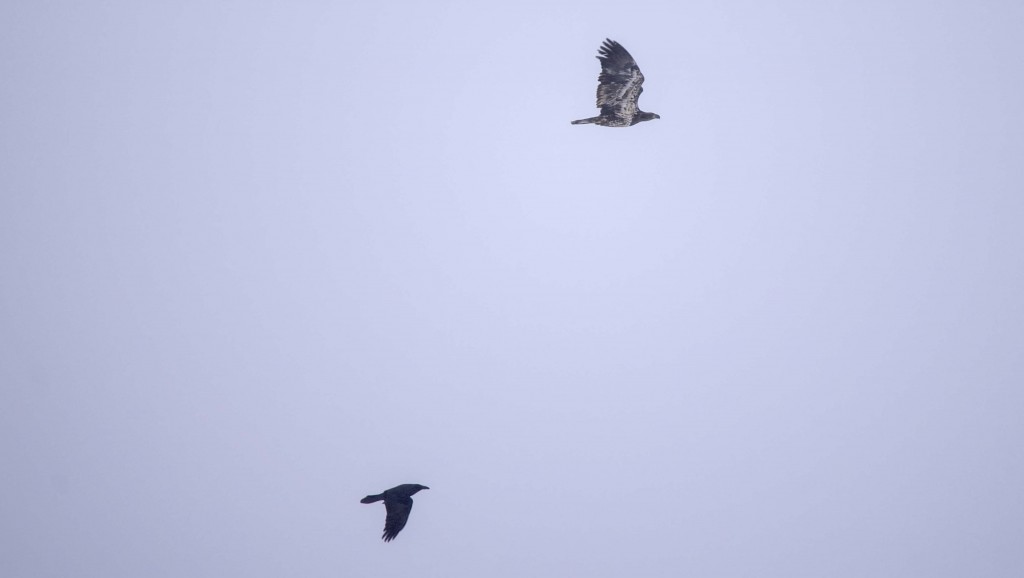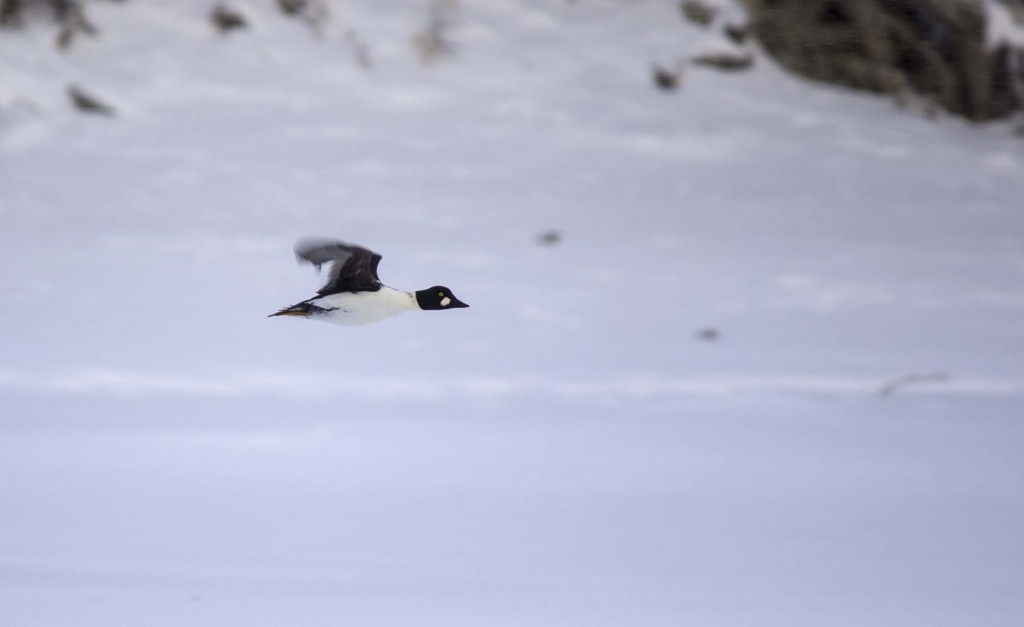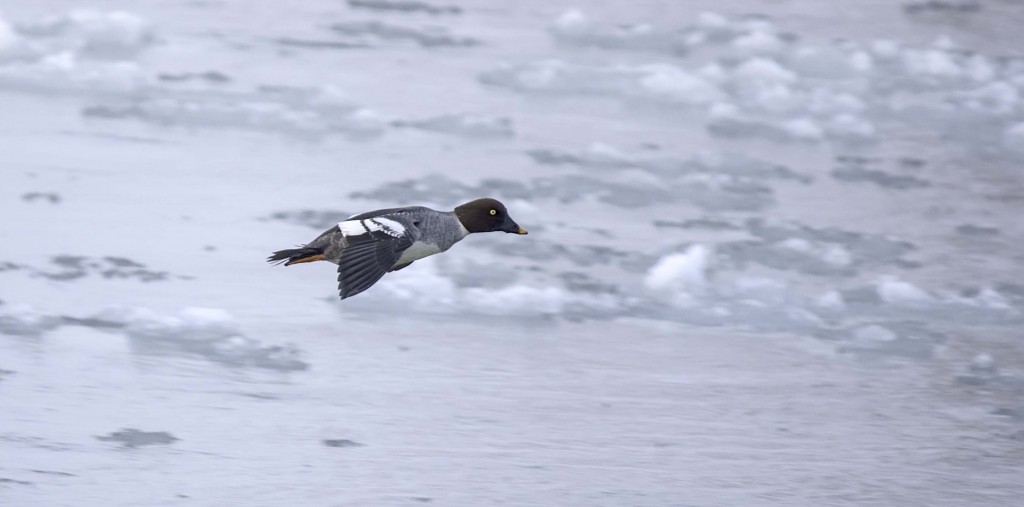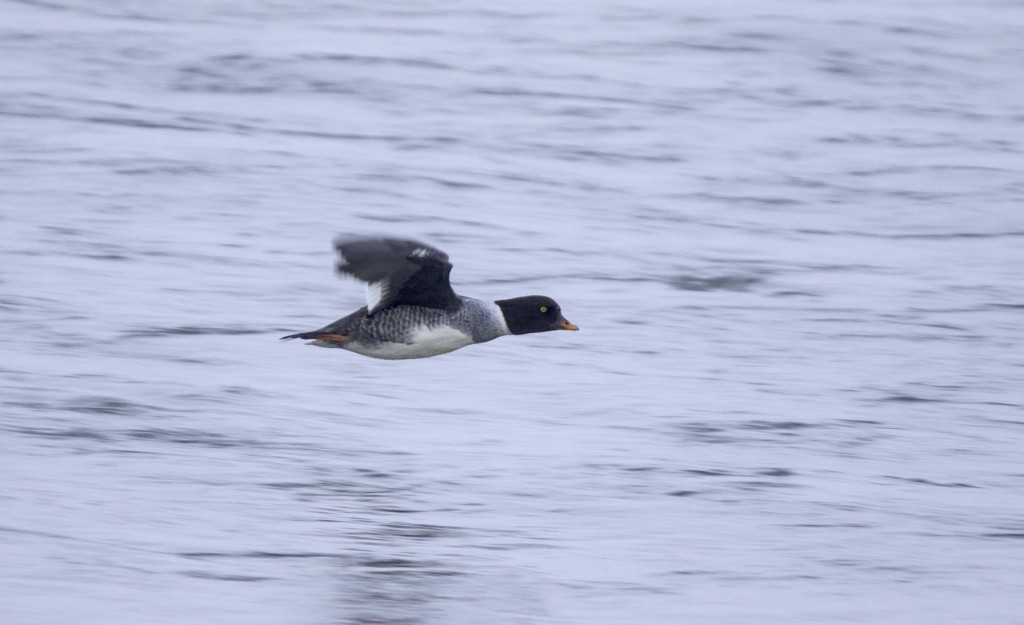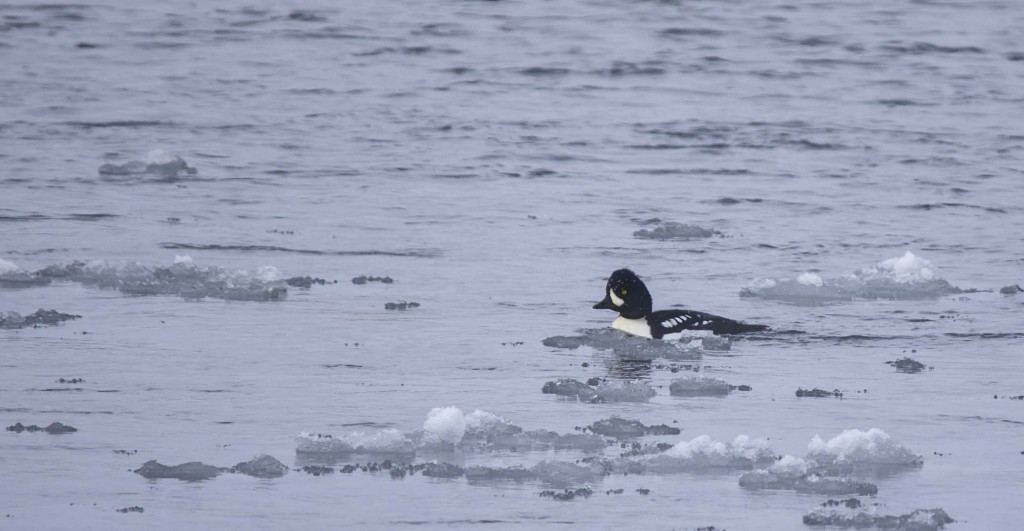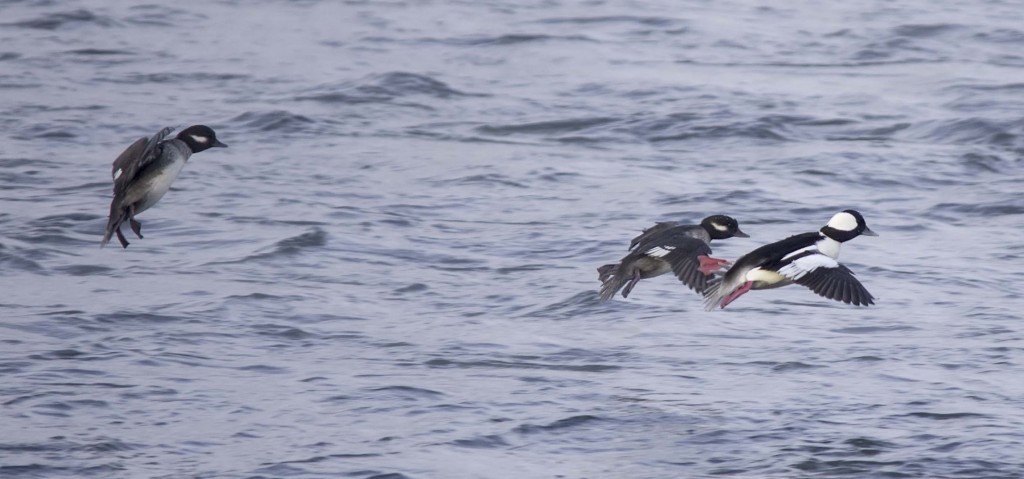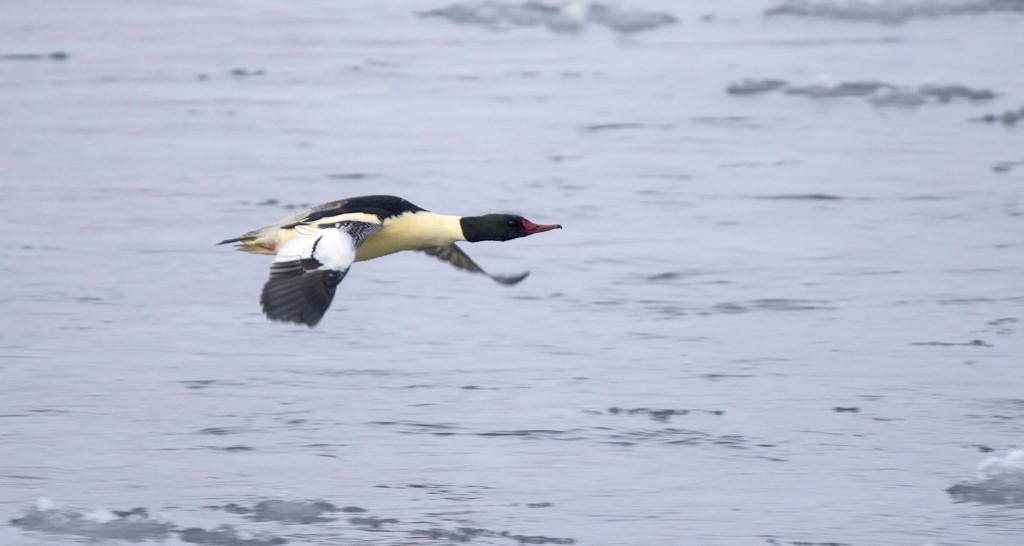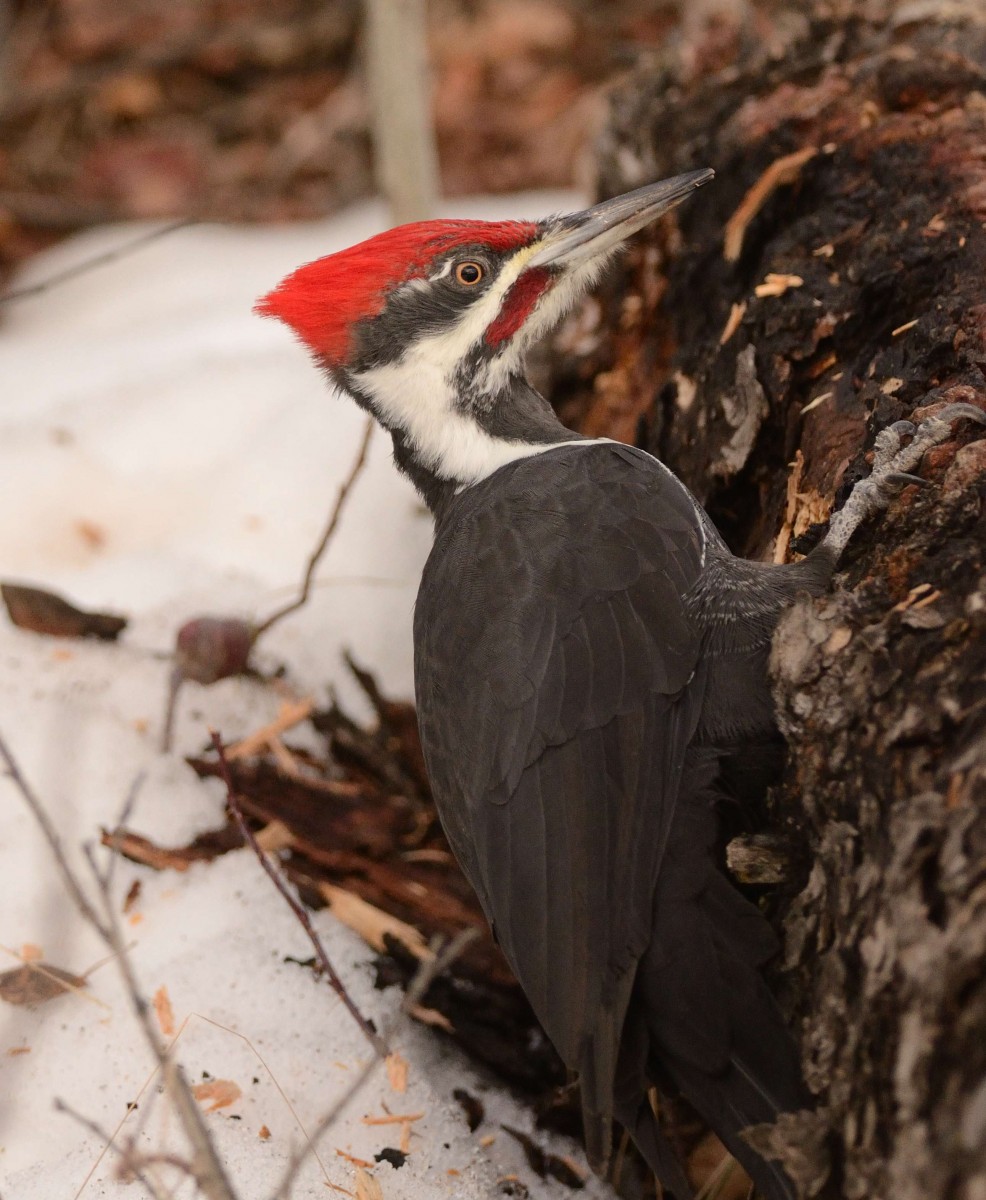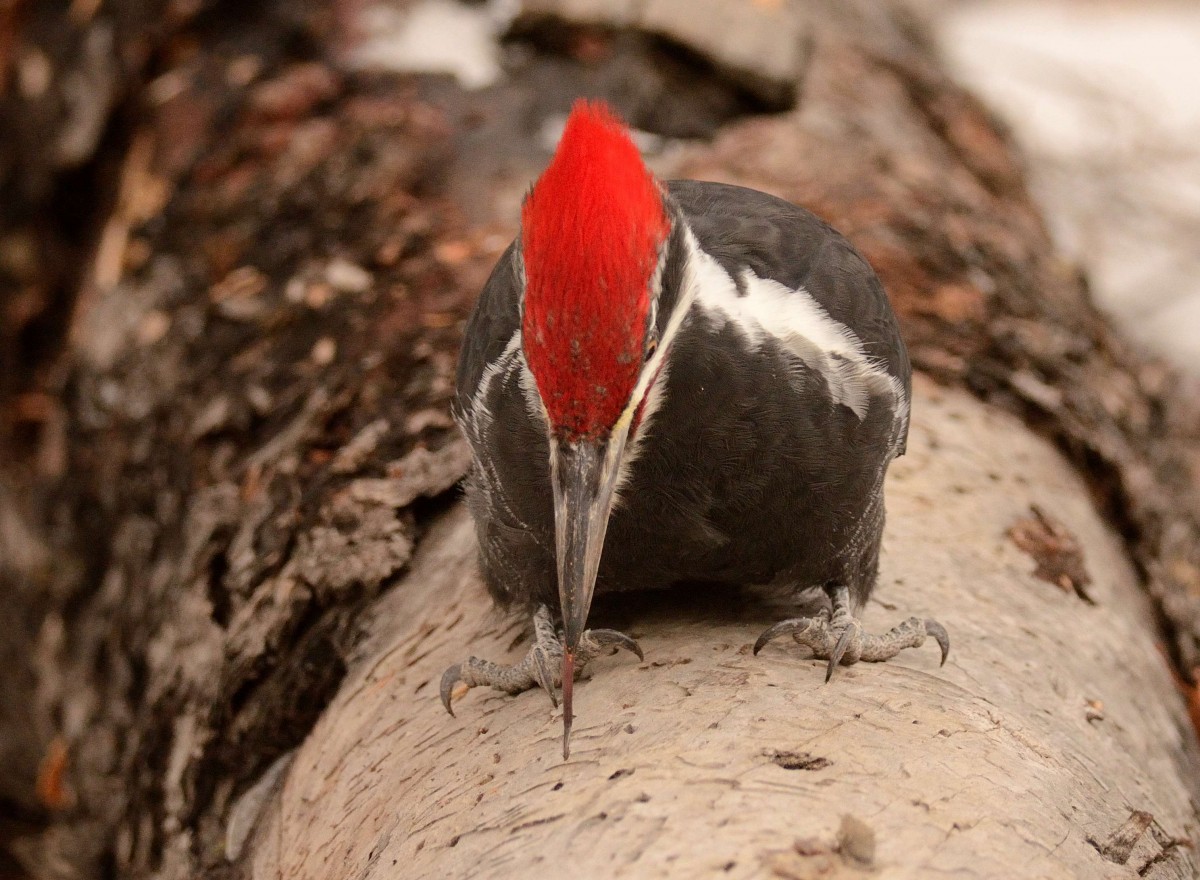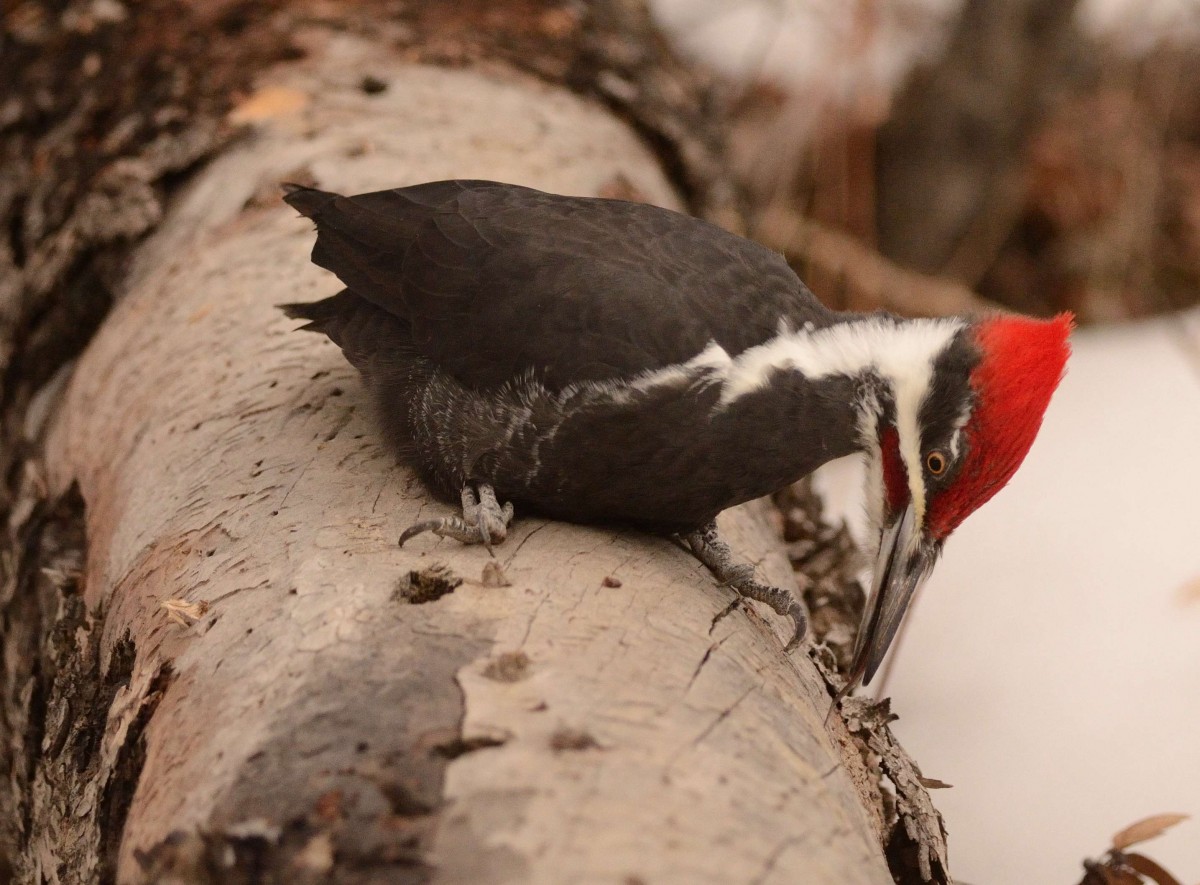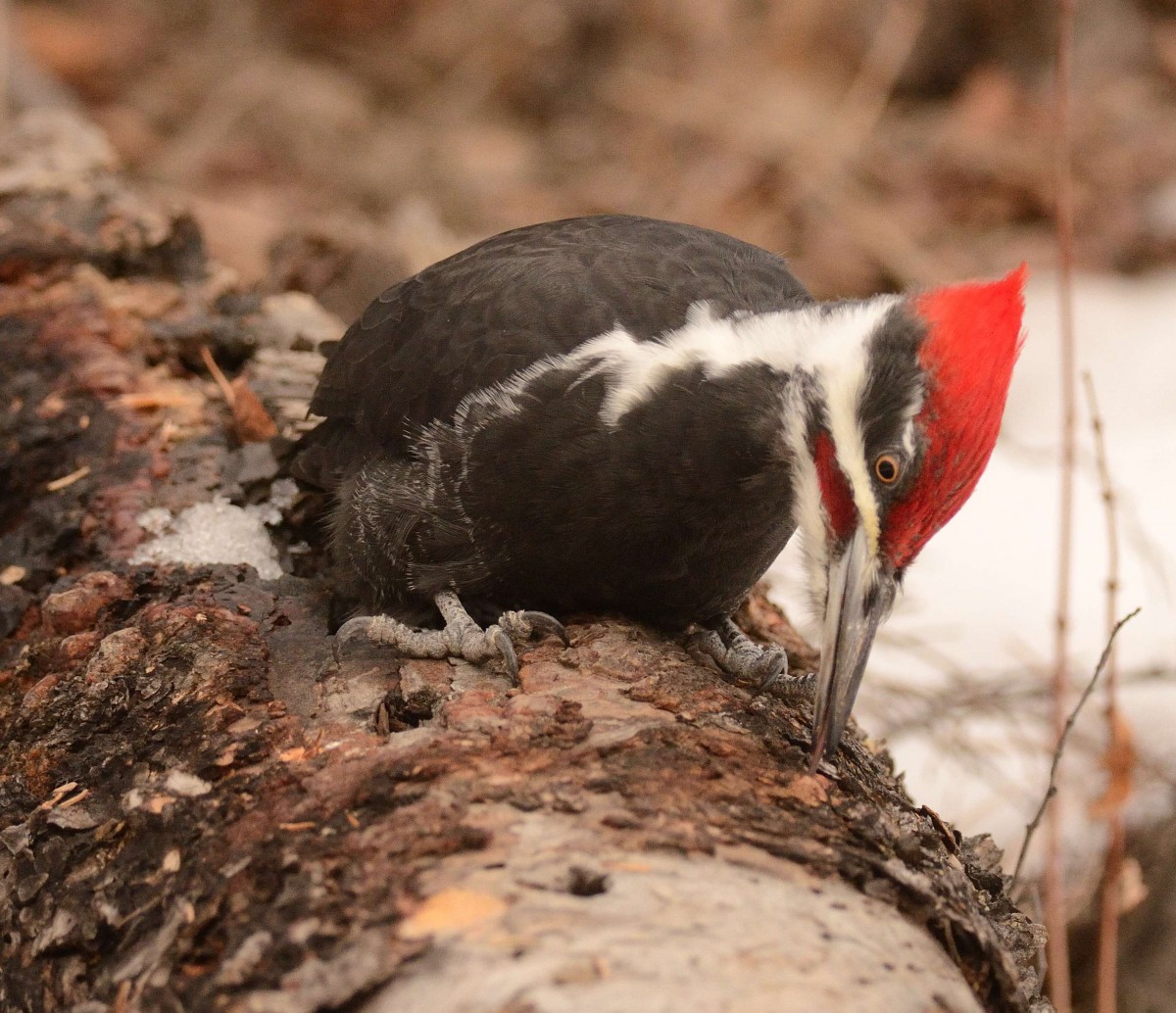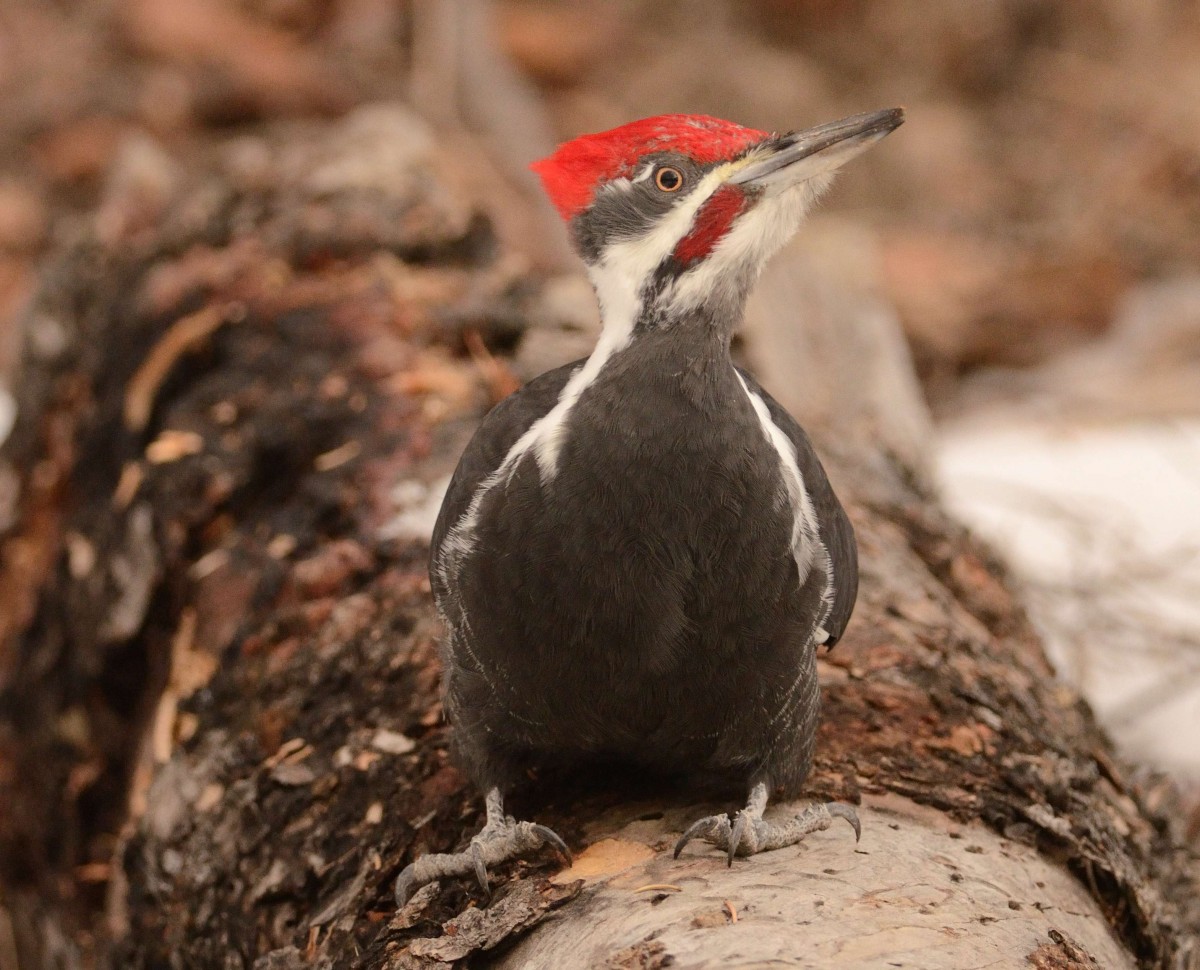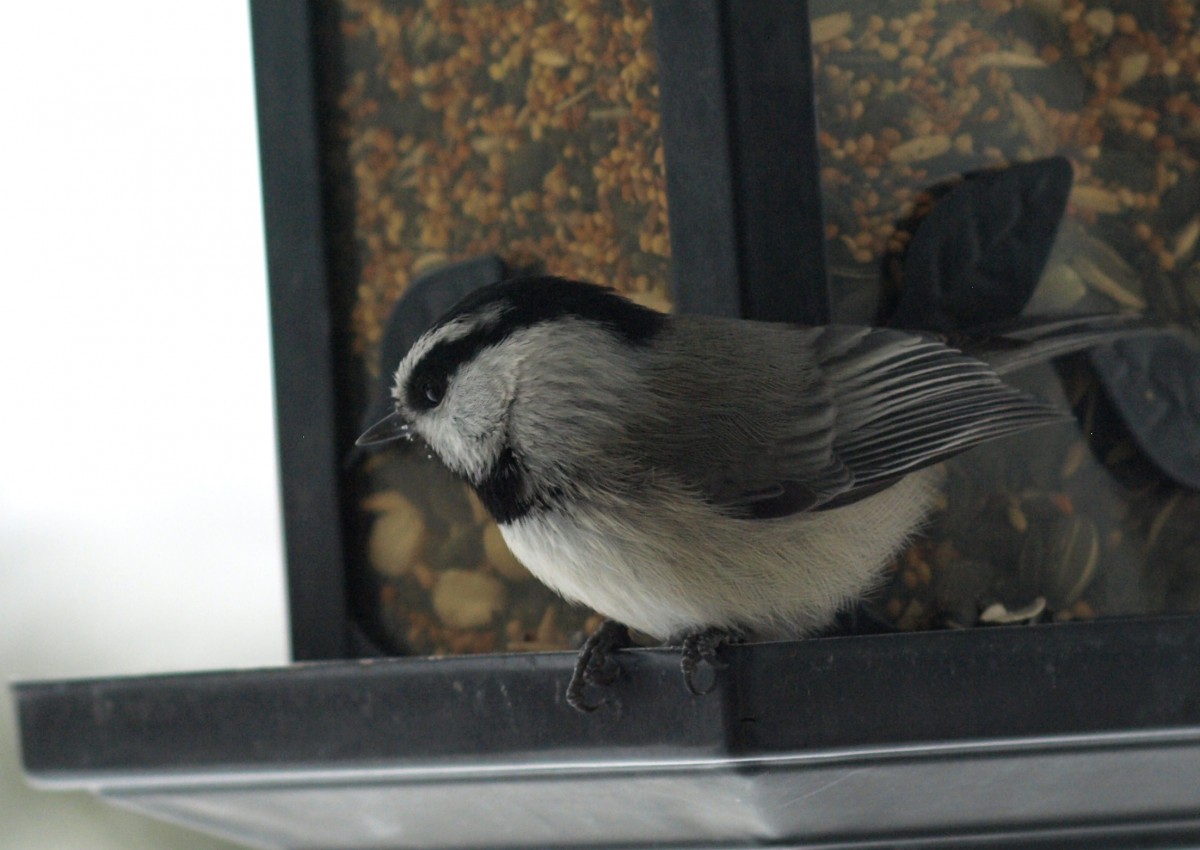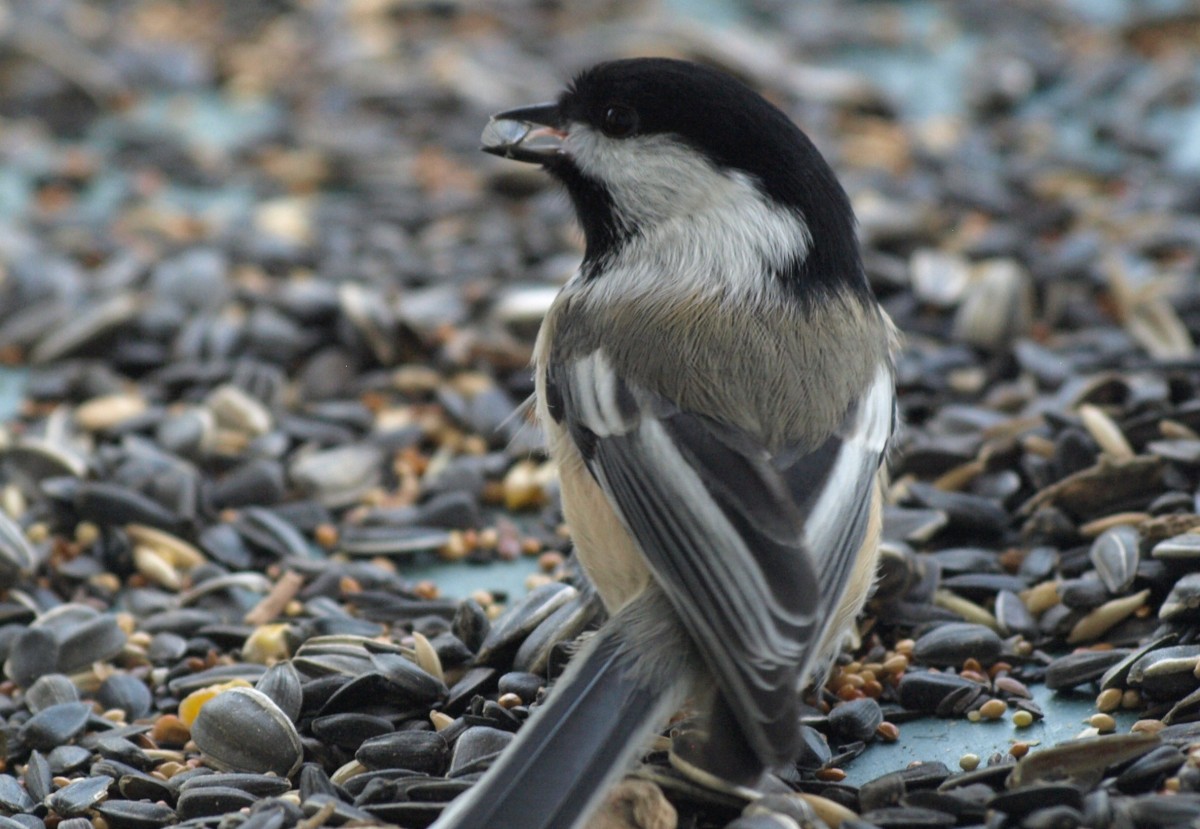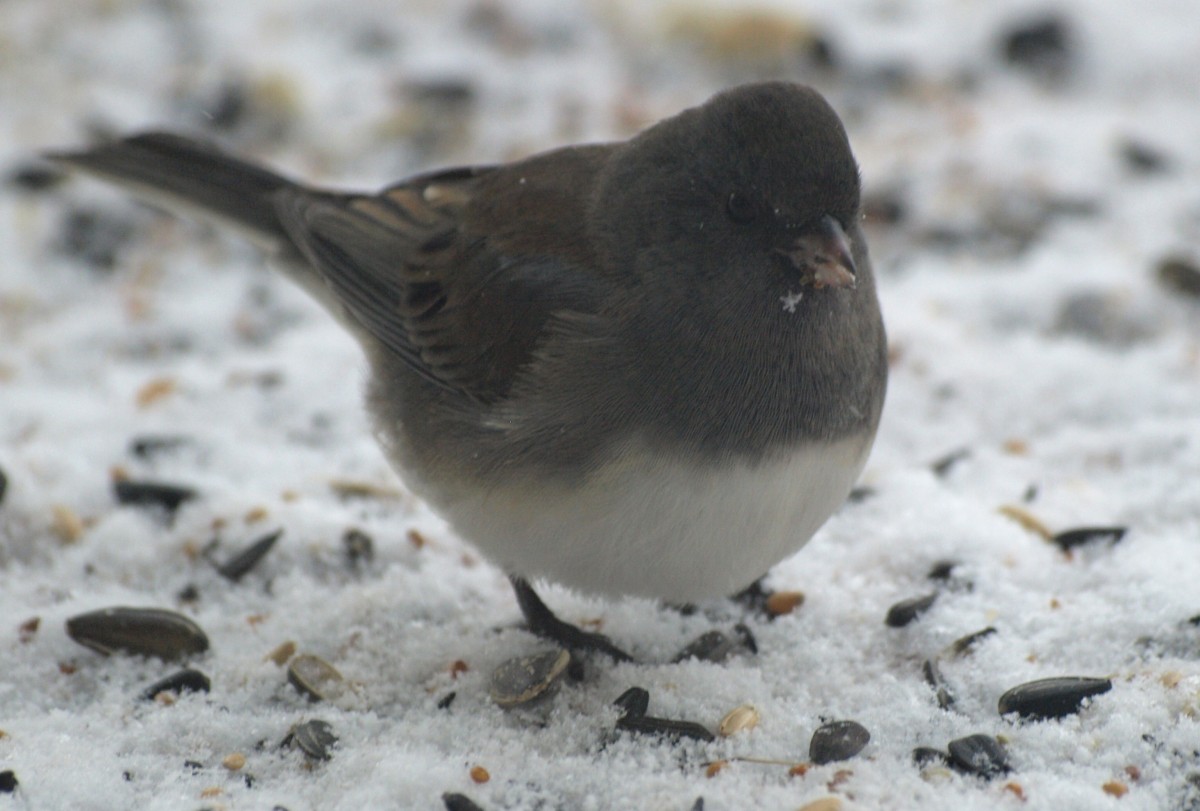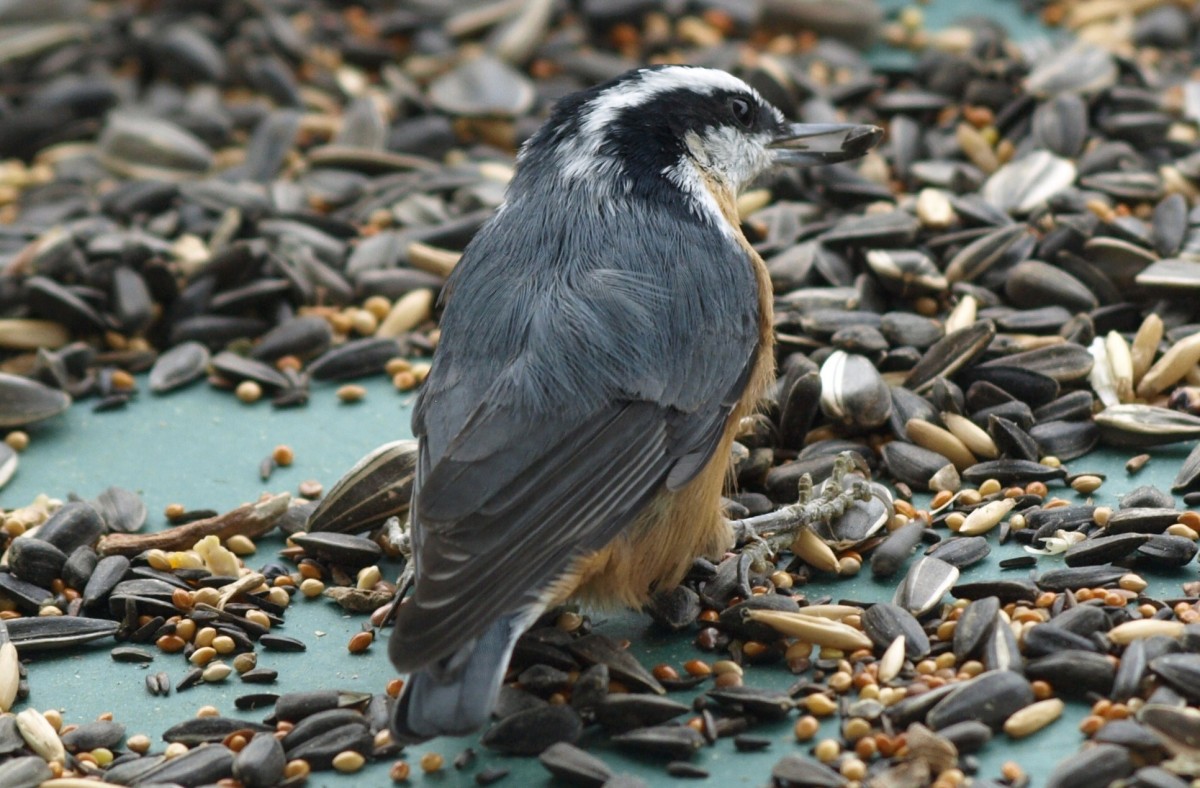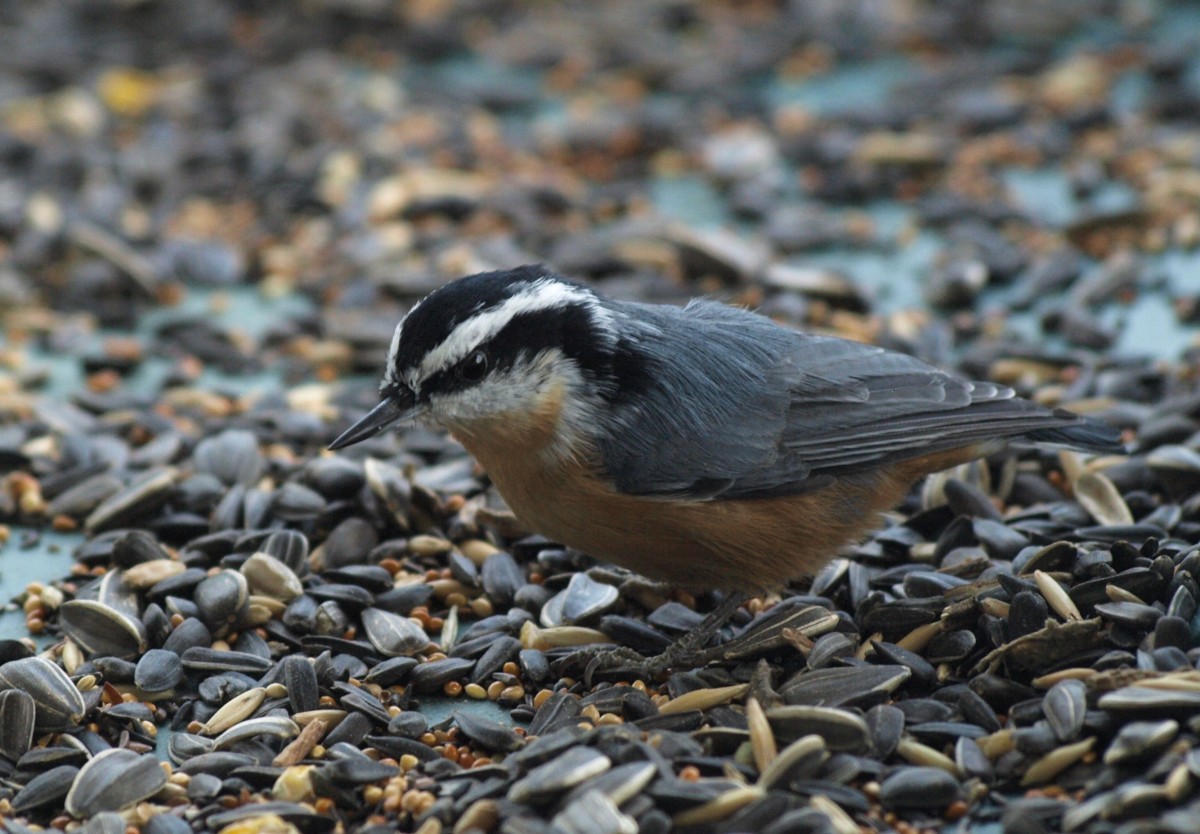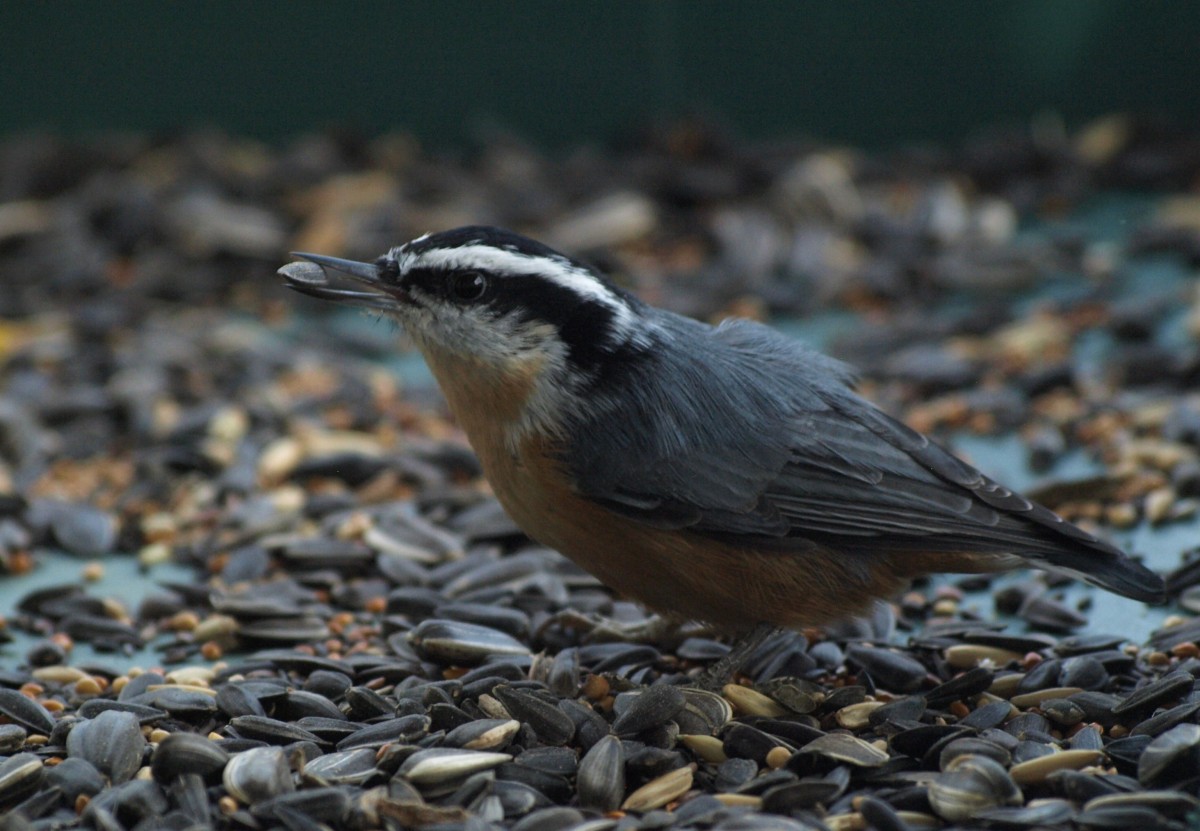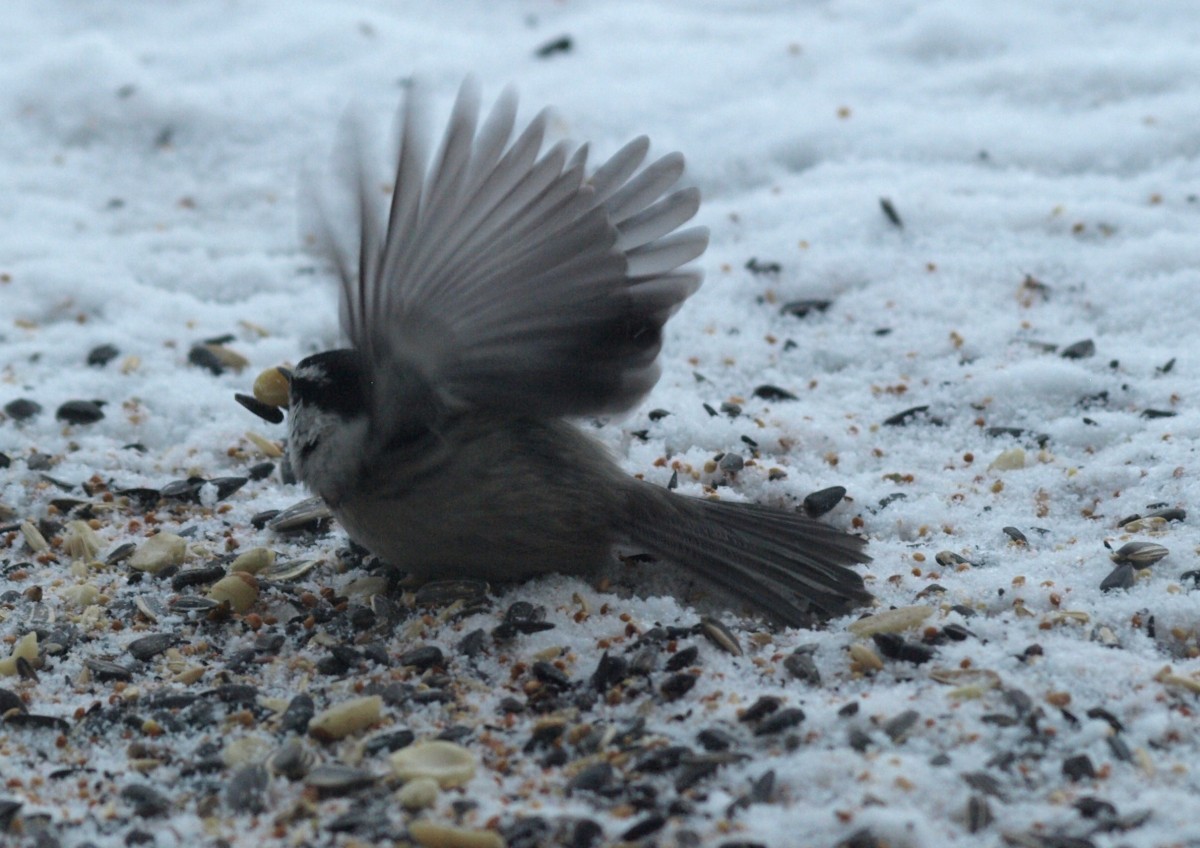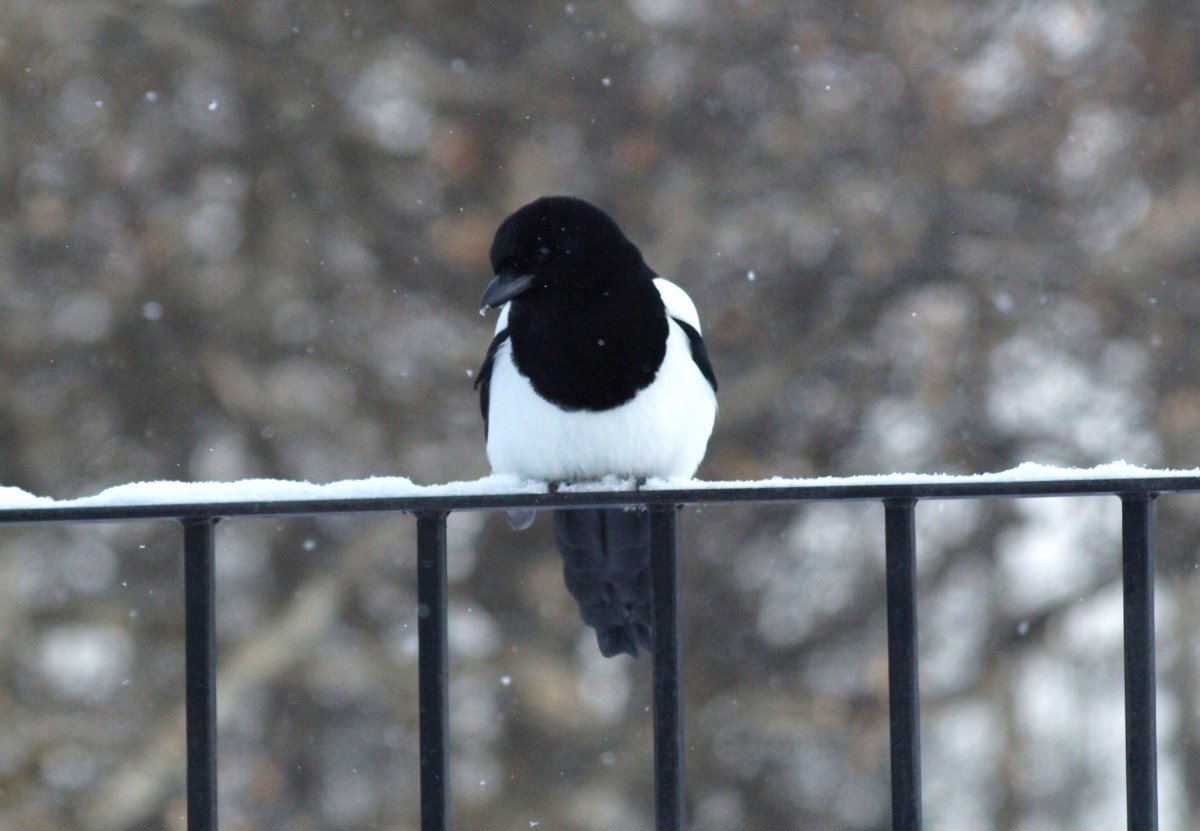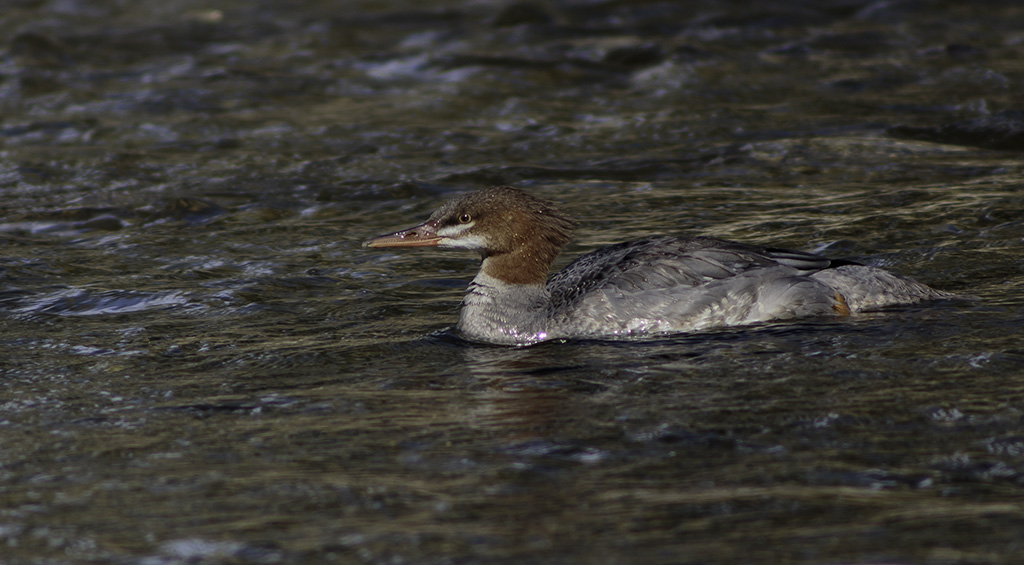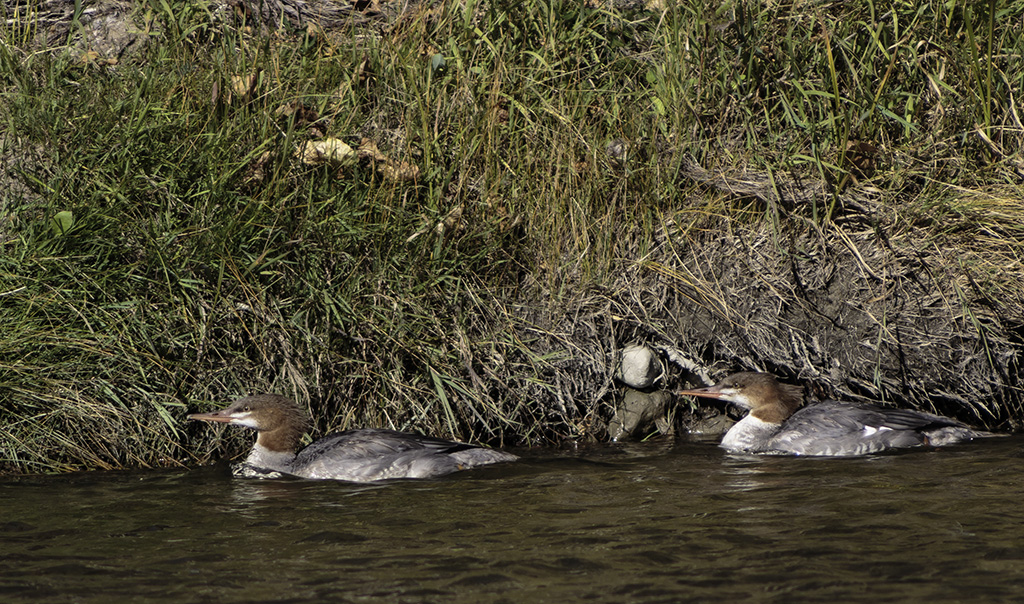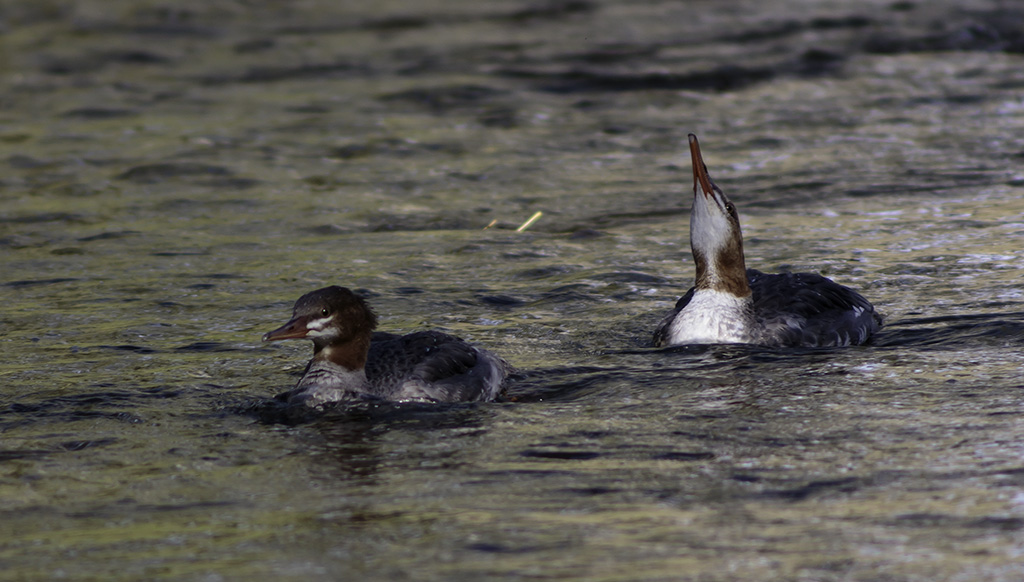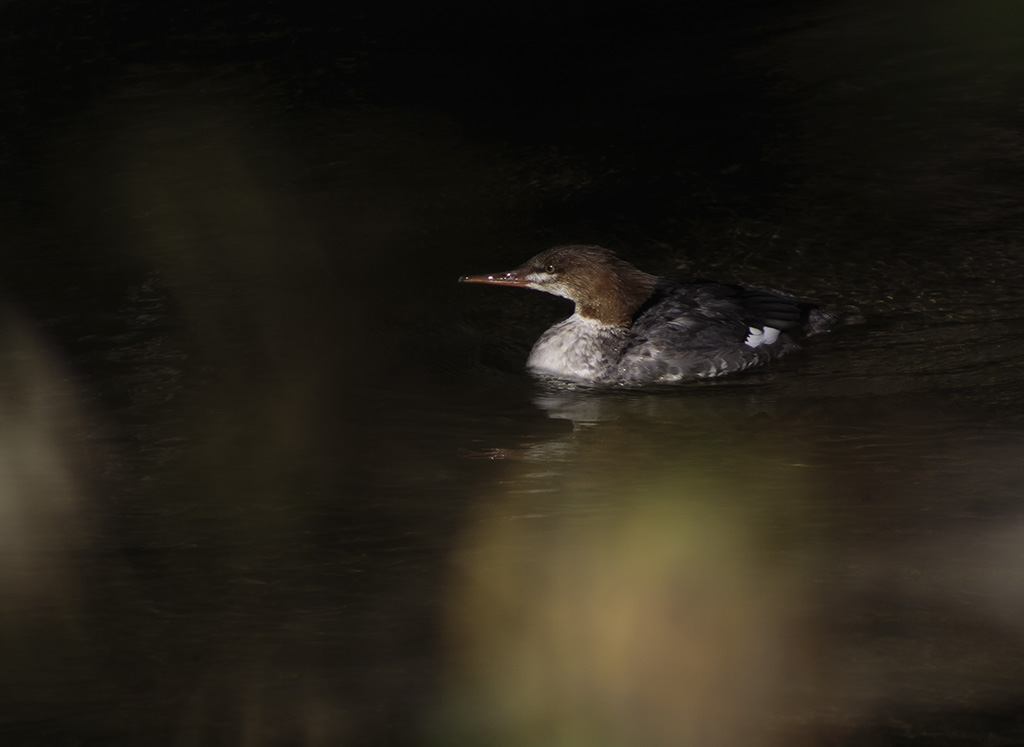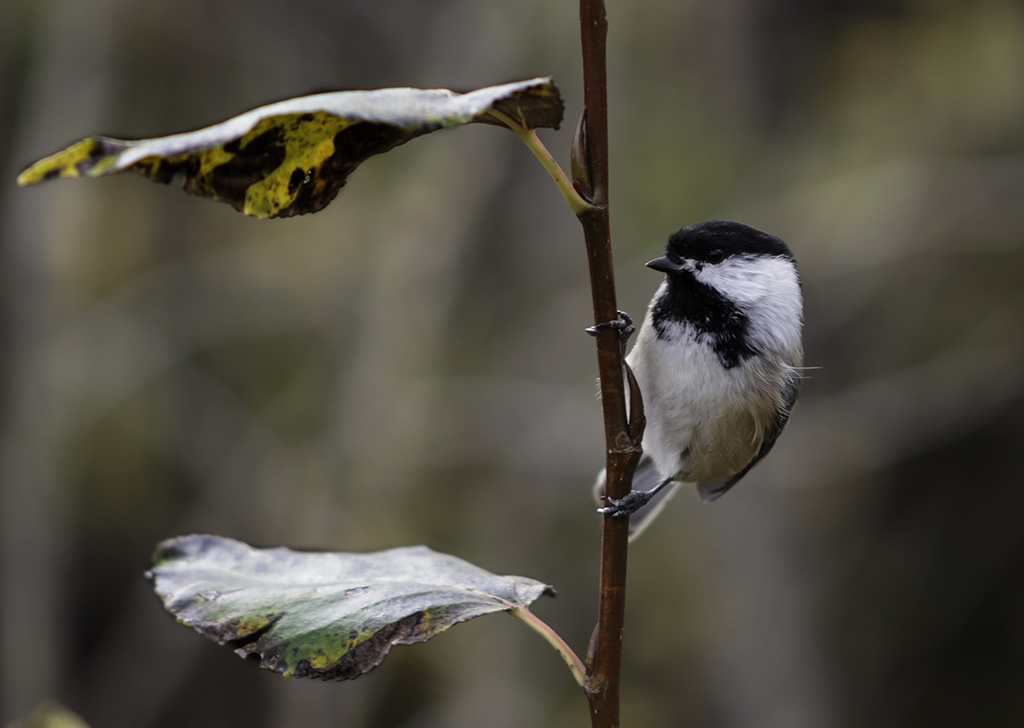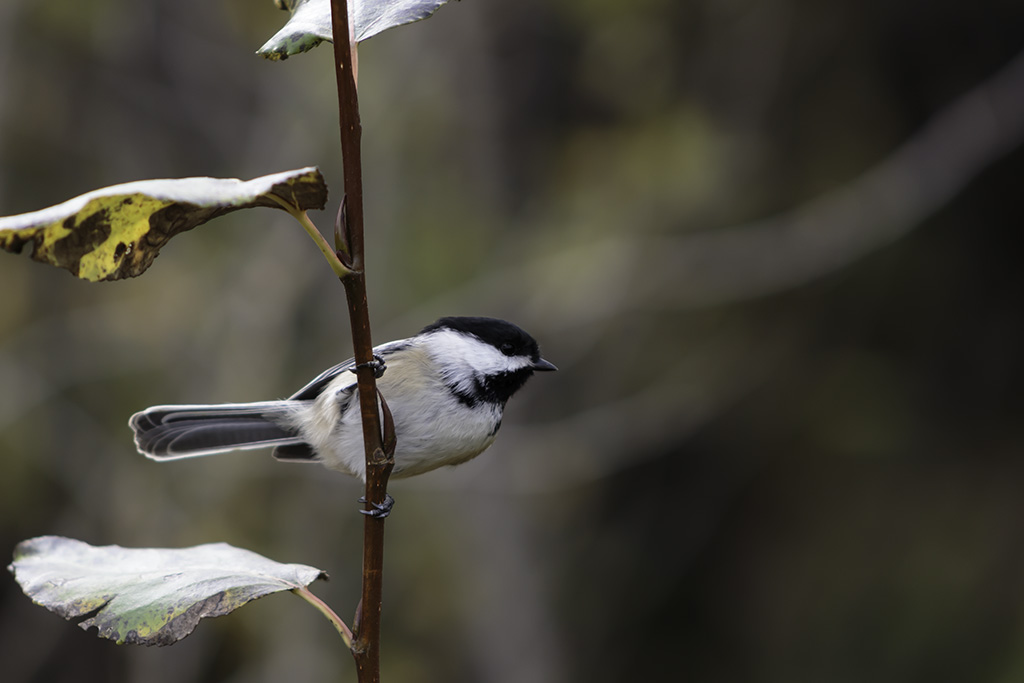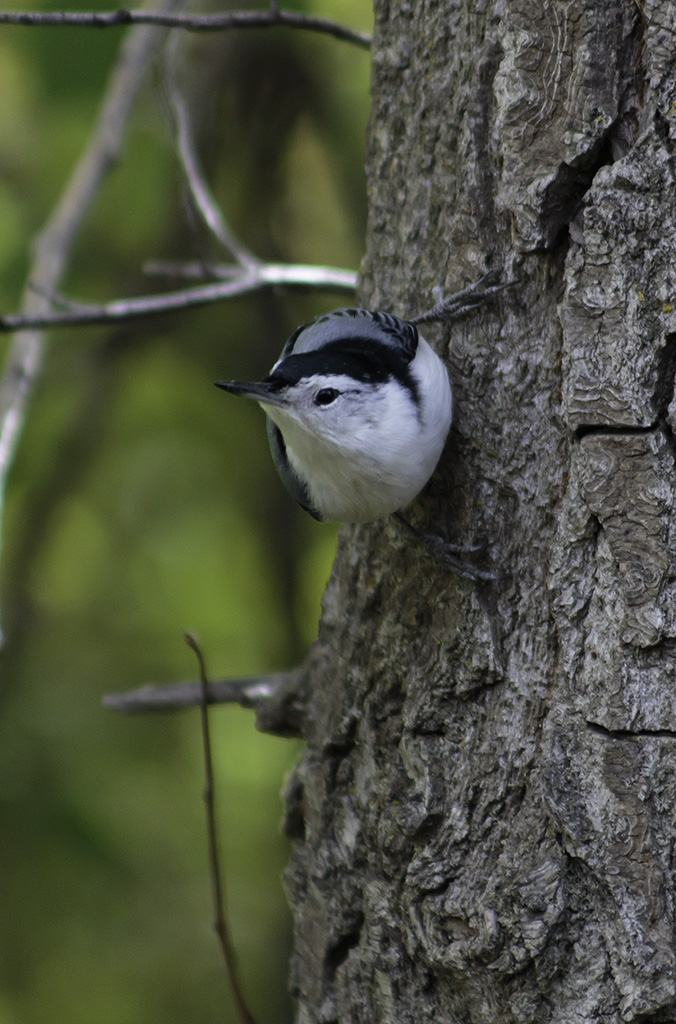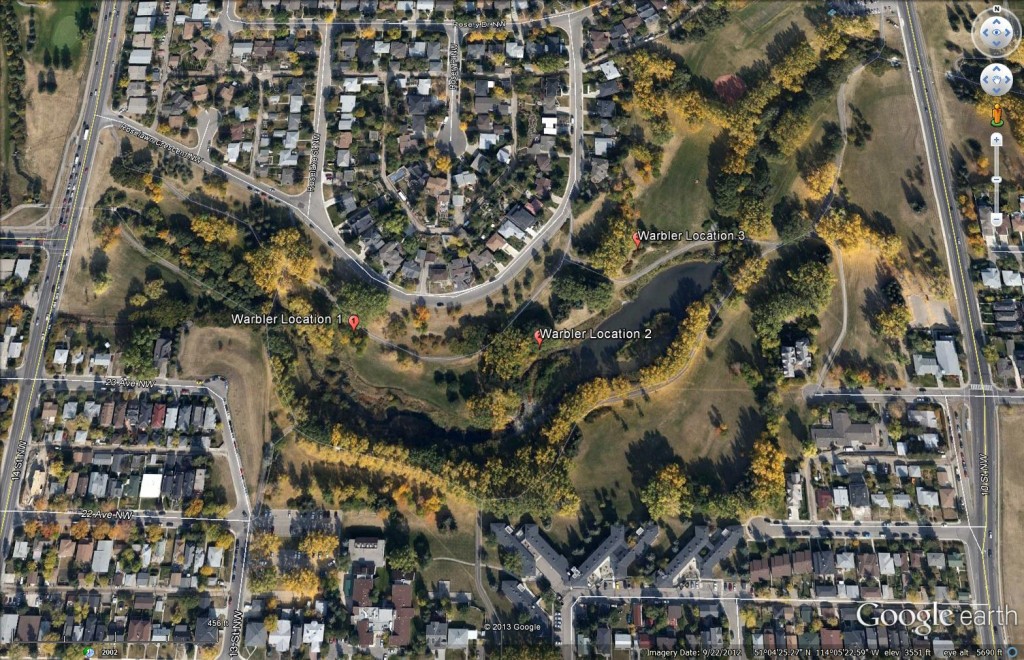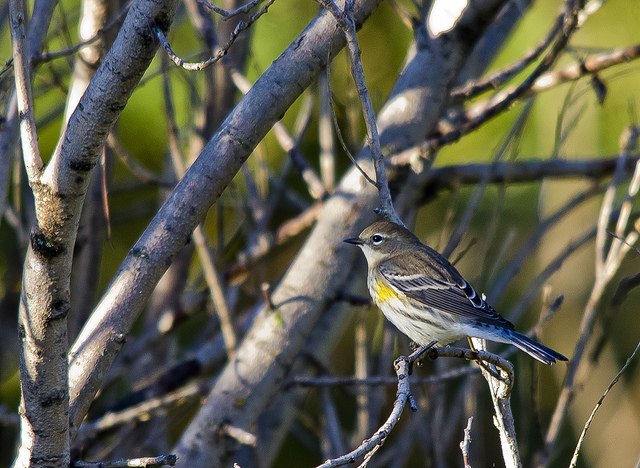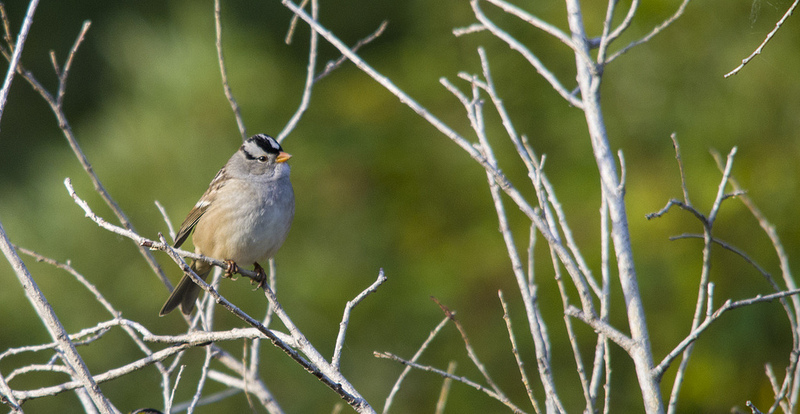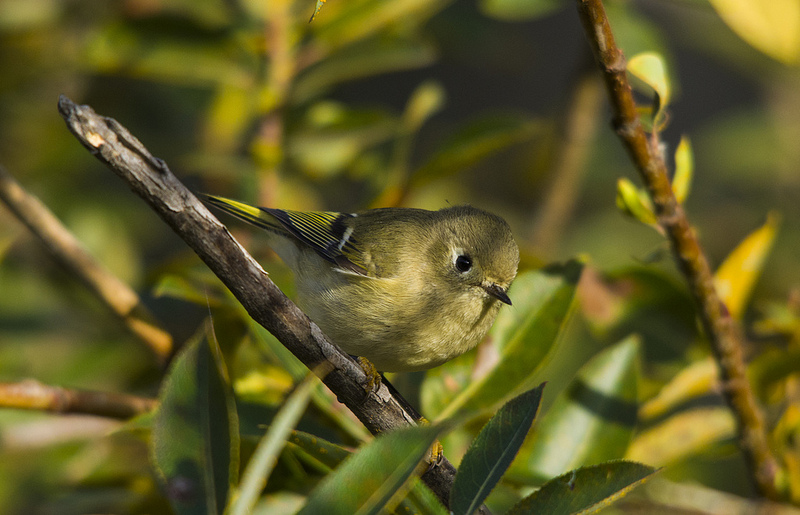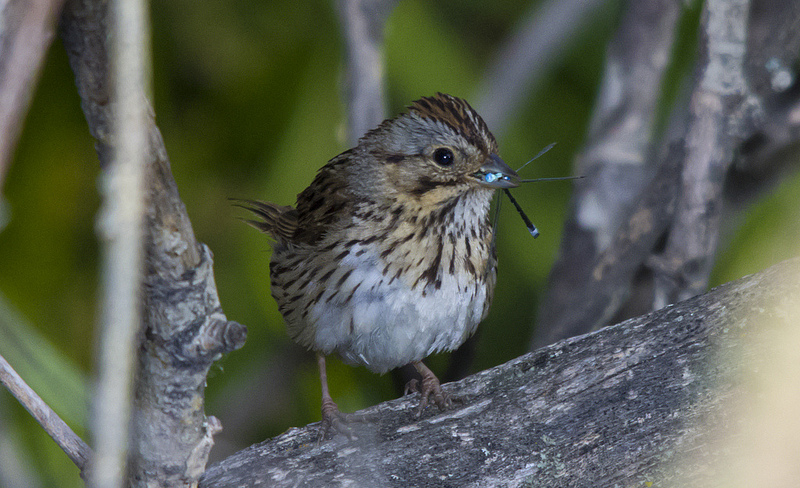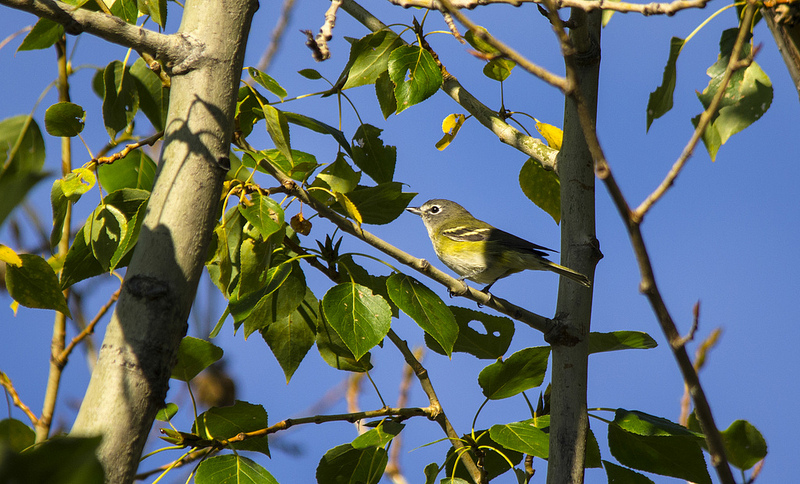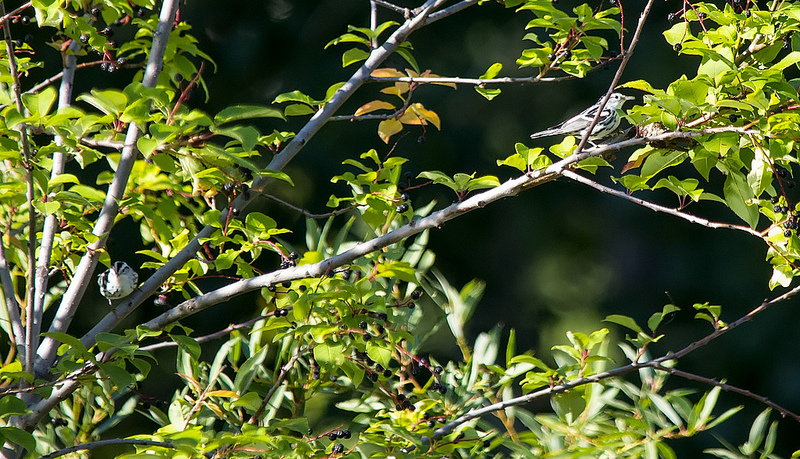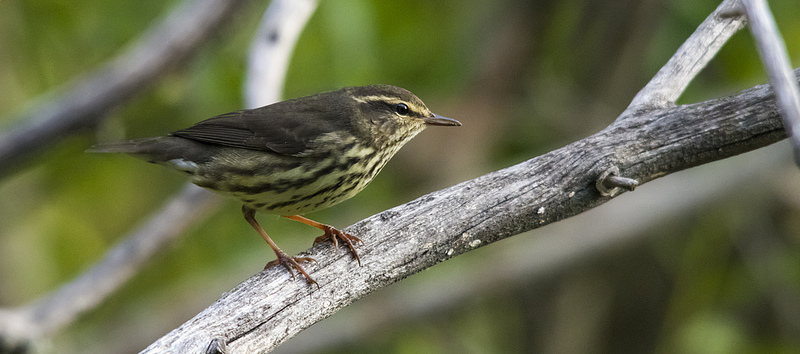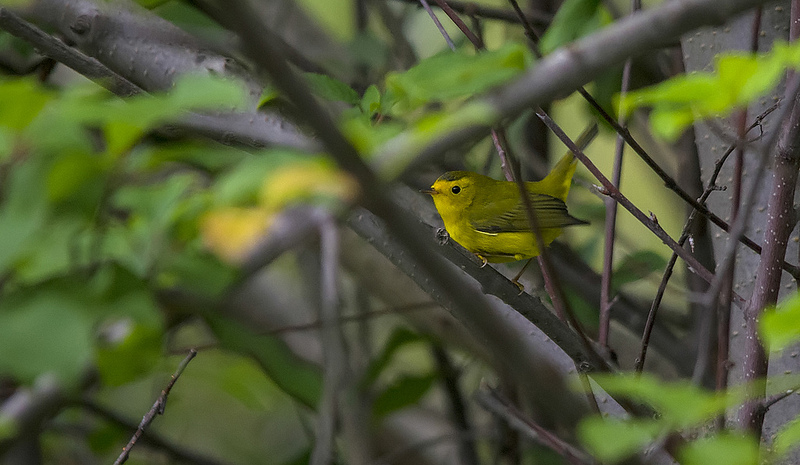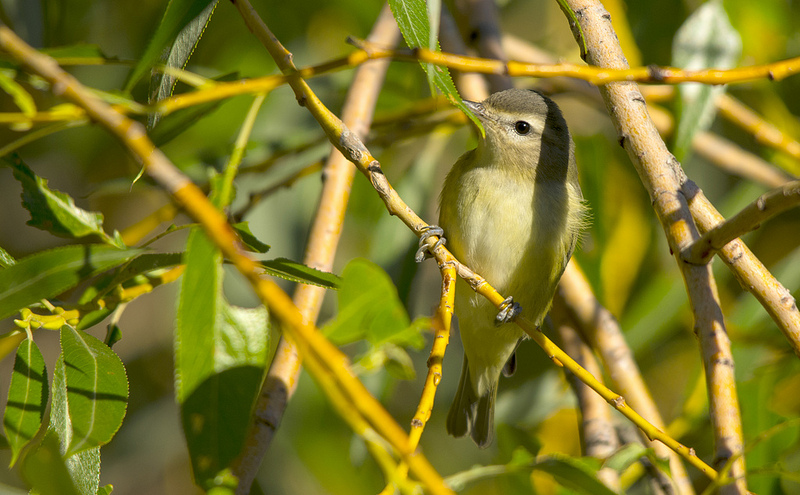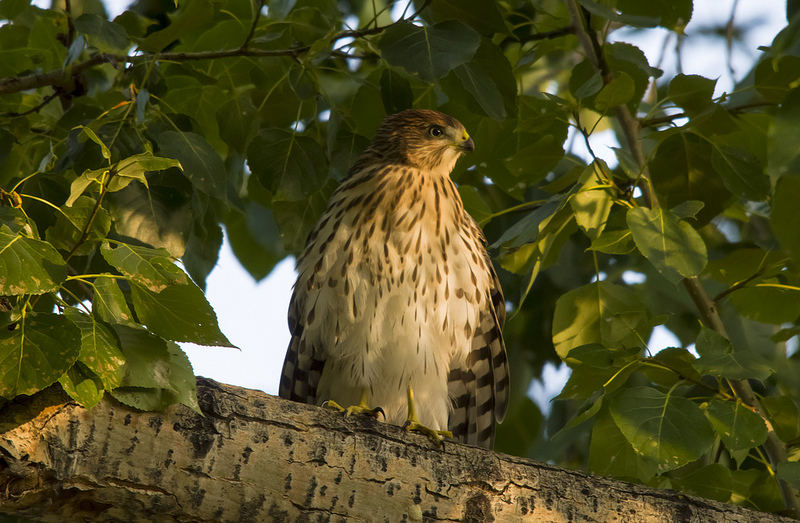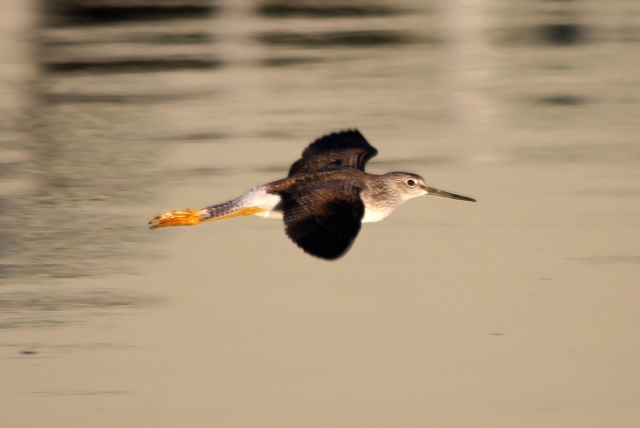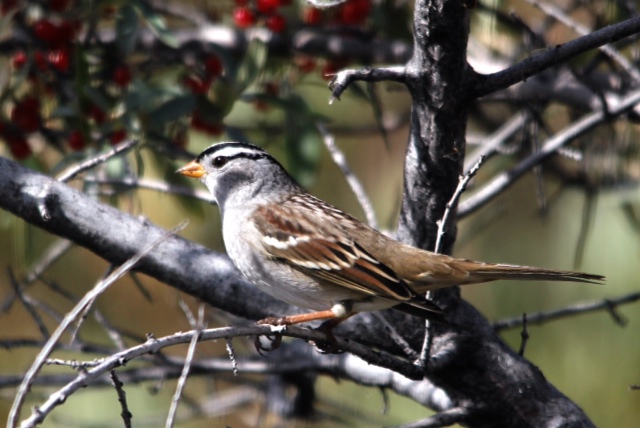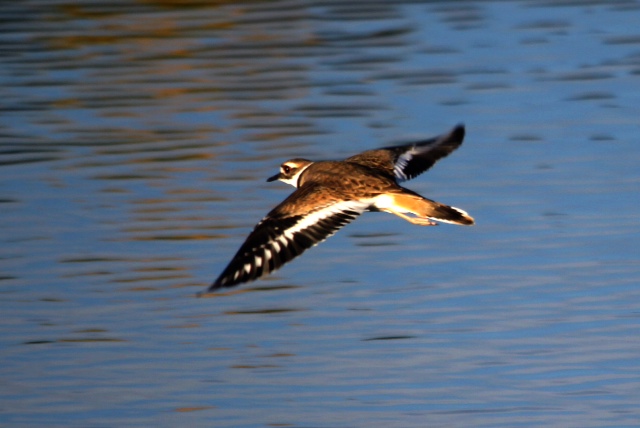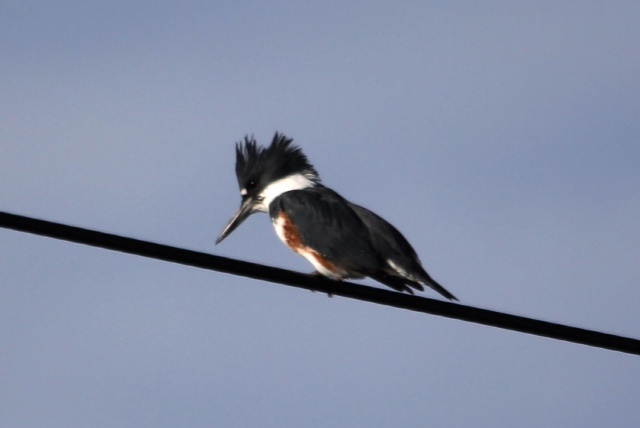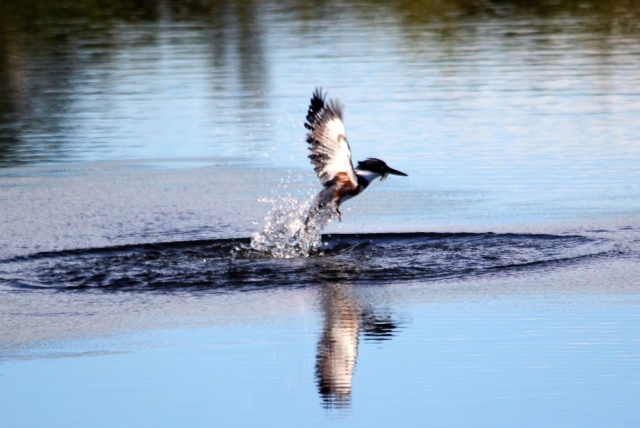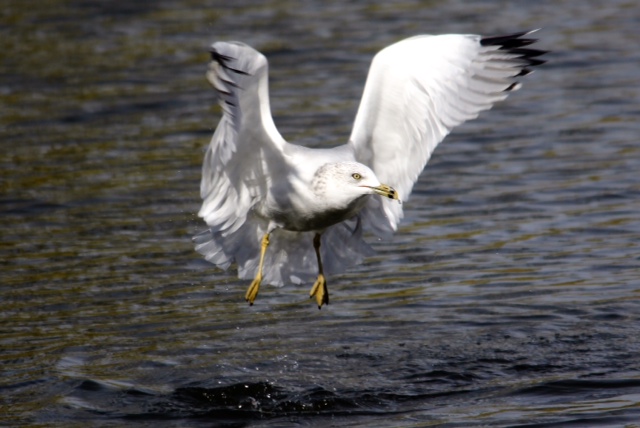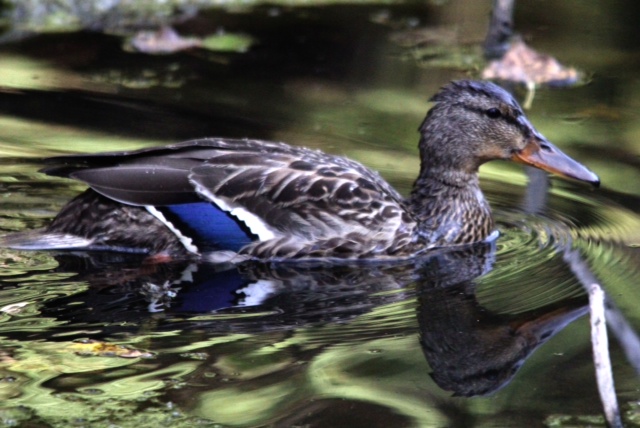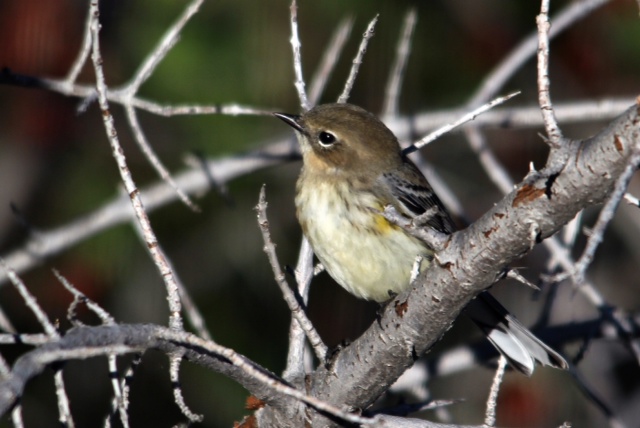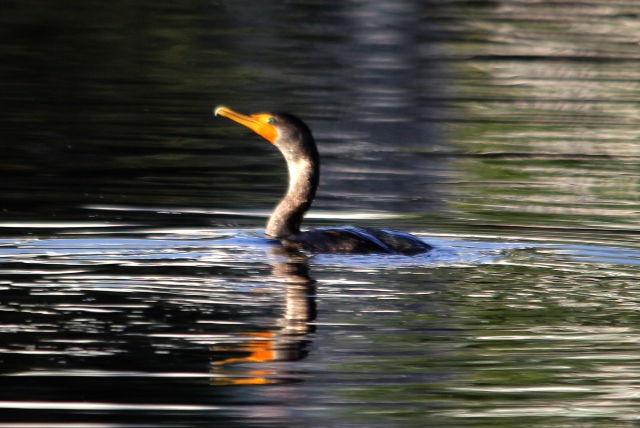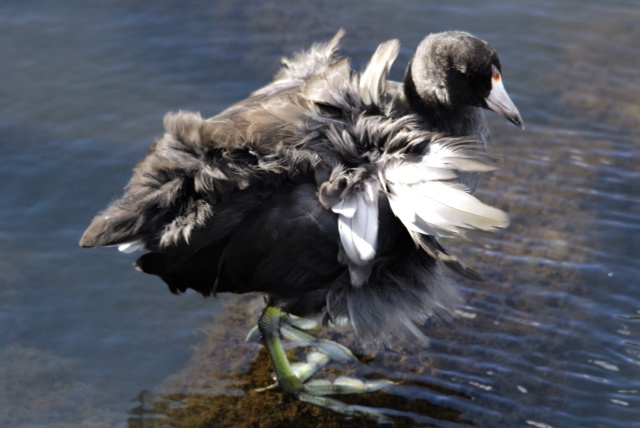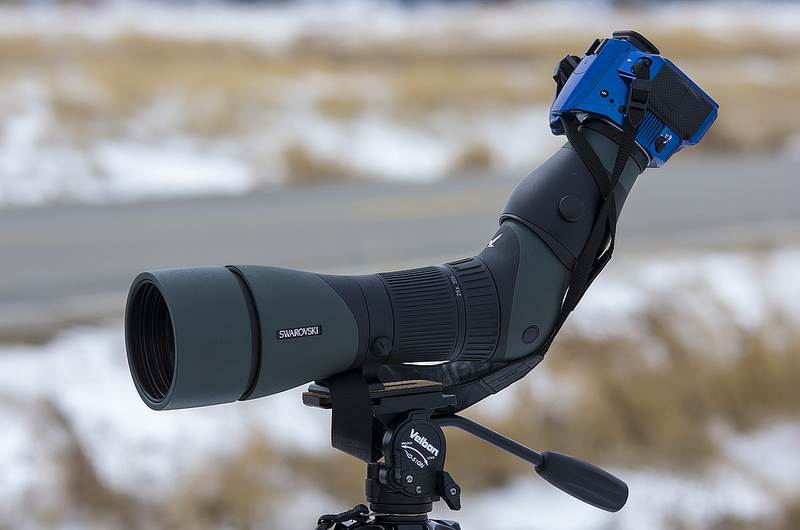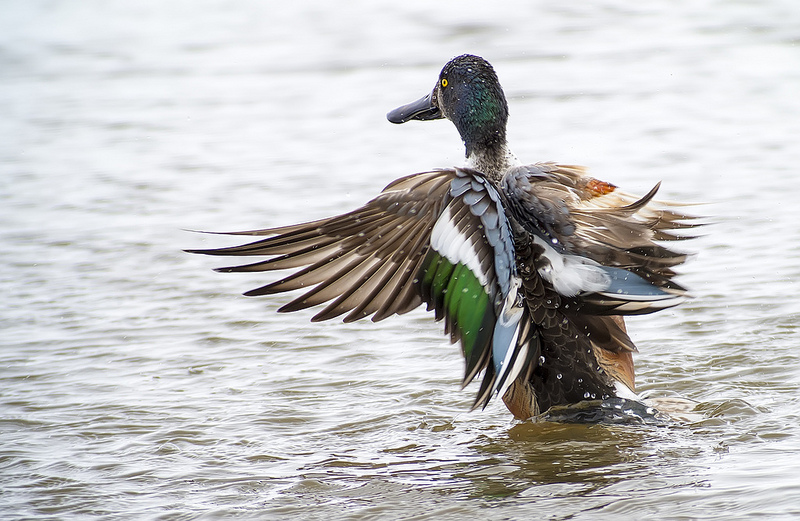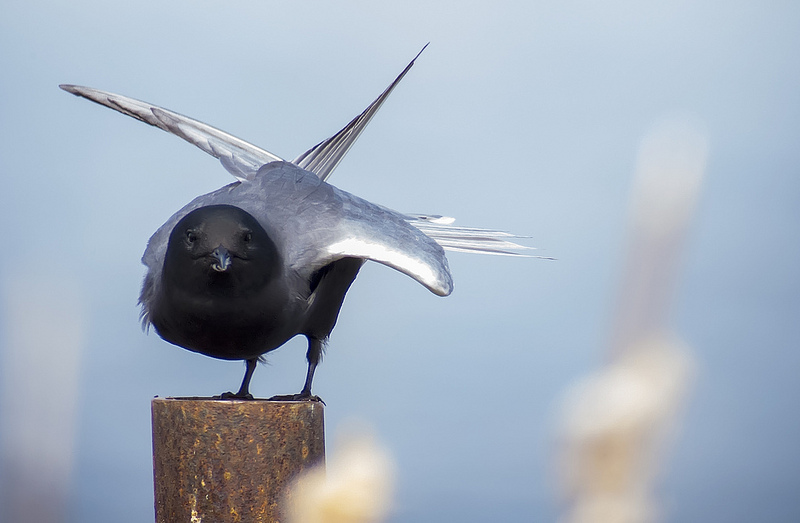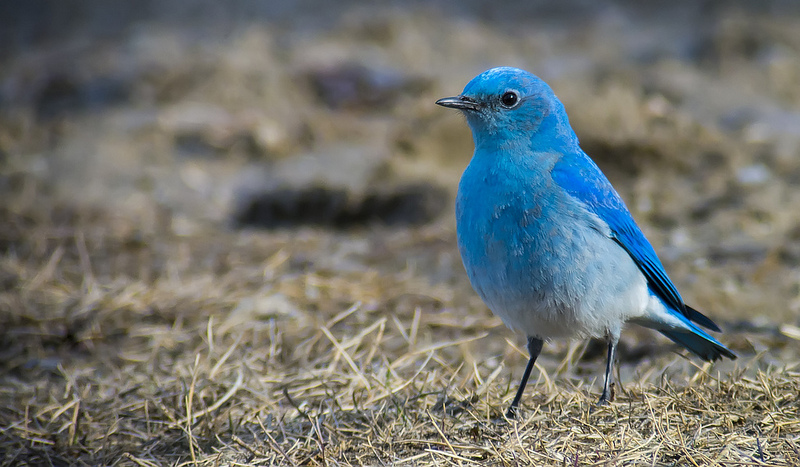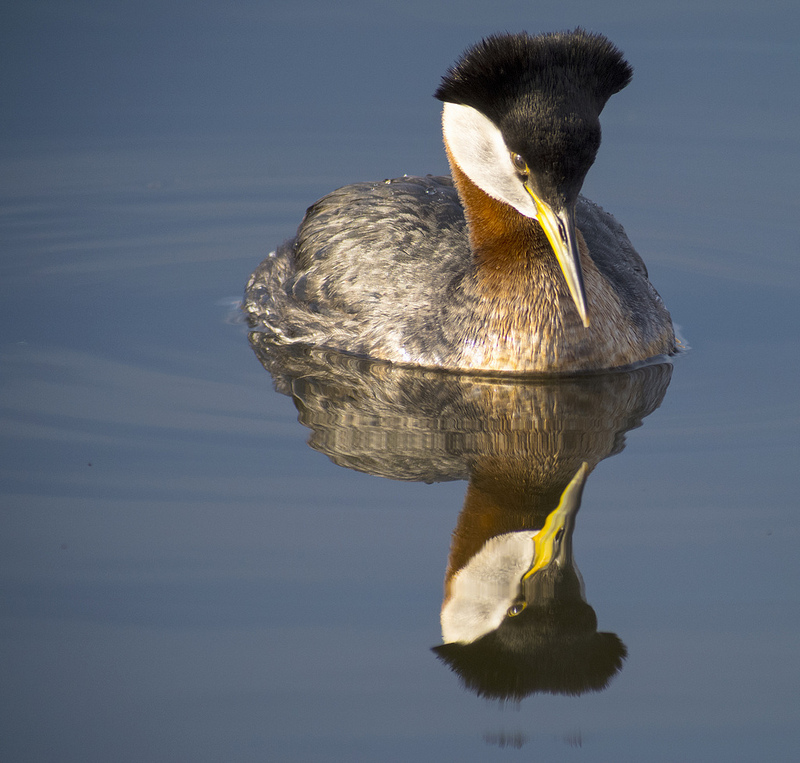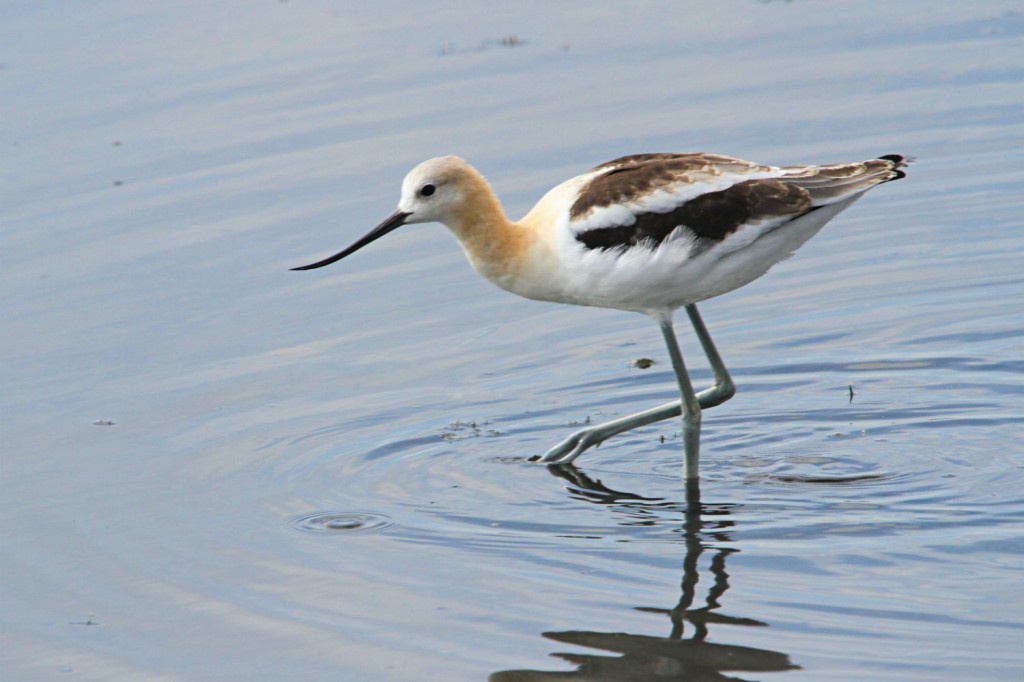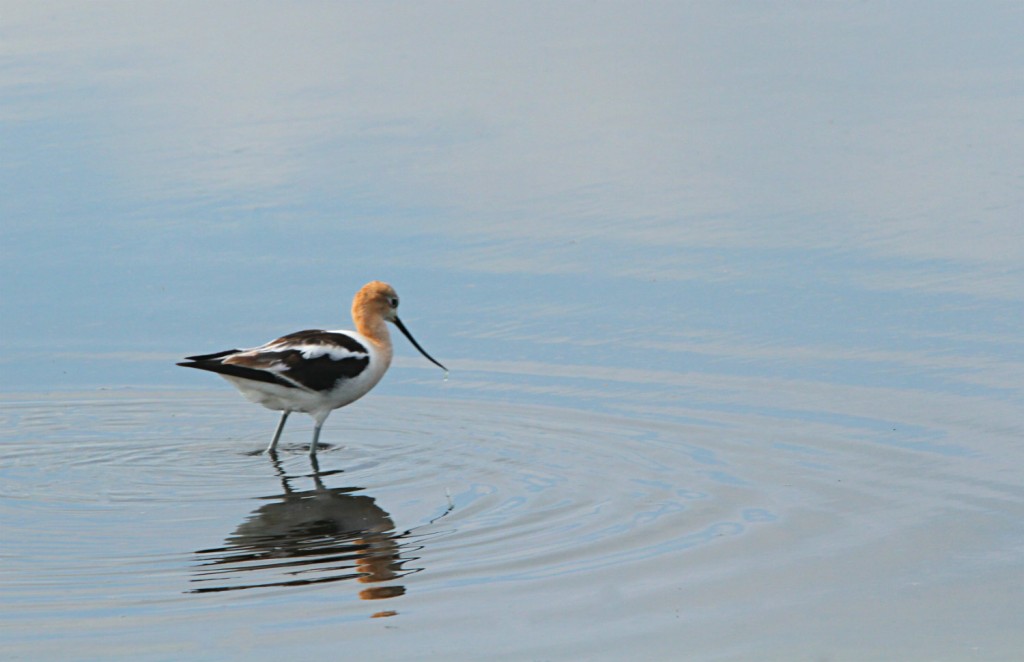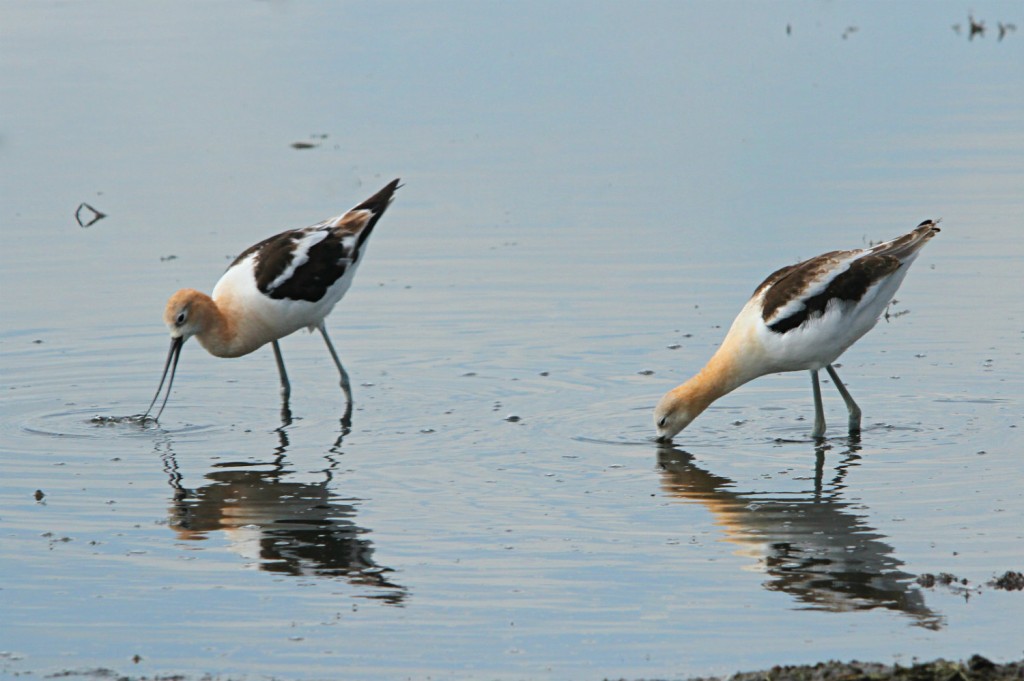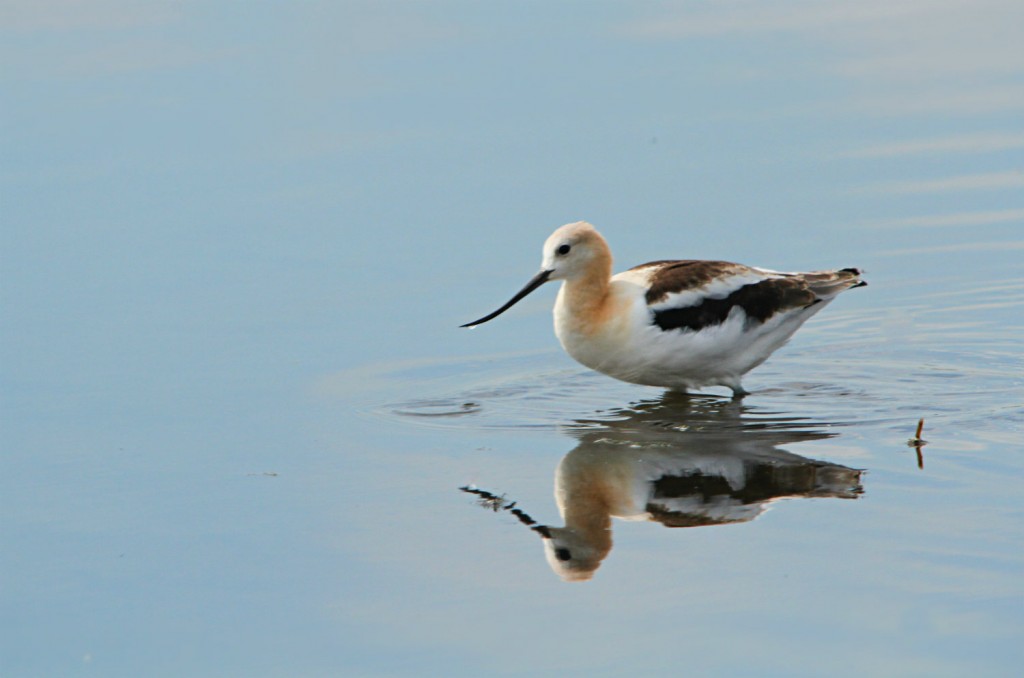Posted by Dan Arndt
Well… maybe paradise is overselling it a bit, but we did a good show from a few Bald Eagles on our outing this past Sunday! Three days this week the outings had been cancelled due to extreme weather and extreme cold. Unheard of for the hardiest of our leaders, but everyone has their limits! Unfortunately, the weather early this morning kept most of our participants away, so we headed off with three leaders and one hardy participant into the cold and the wind.
What started off as a cold, blustery and grey day turned into some amazing blue skies, much warmer weather than we’ve seen all week, and some great opportunities to get some action shots. Needless to say though, it took a little bit for everyone to get going, including some of the first groups of birds we saw. This backwater along the Bow River was completely full of mostly Canada Geese and a few Mallards for good measure.
Even the Bald Eagles looked completely unimpressed in the cold and the wind. The expressions of utter contempt for both us, and the hundred or so waterfowl just below them in the water, have led me to nickname these two as Hekyll and Jekyll.
As we turned back to follow the river bank southward, things started to pick up. The sun was making a serious attempt to break through the meager cloud cover to the south and east, and some of the birds began to show a few more signs of life. A third immature Bald Eagle was being chased (but not quite harassed) by the Common Raven keeping a keen eye on it from below.
As the wind picked up a little, it caused the birds to begin to fly up-river, allowing some half-decent flight shots. Along with the wind picking up, the sun finally began to break through, and provided some great light for the remainder of our walk. First up, a male and female Common Goldeneye, flying by within a few minutes of each other.
A moment later, a female Barrow’s Goldeneye flew by, and a male of the same species broke away from the Canada Geese at the far shore and made his way into the middle of the river shortly after.
This group of Buffleheads touched down in the water about halfway into the river, showing off their bubble-gum pink legs. That’s one lucky male Bufflehead getting the pick of mates this winter!
And last but not least, this male Common Merganser flew by quite close, showing off his bright red bill and a hint of green in the head as the sun began to shine.
We continued south along the river without seeing too much else of note, but shortly after we turned back on one of the inner pathways, this subadult Bald Eagle flew by behind us and alighted in a tree, closely tailed by a flock of scavenging Common Ravens, looking for whatever scraps they could manage to steal from the wary bird of prey.
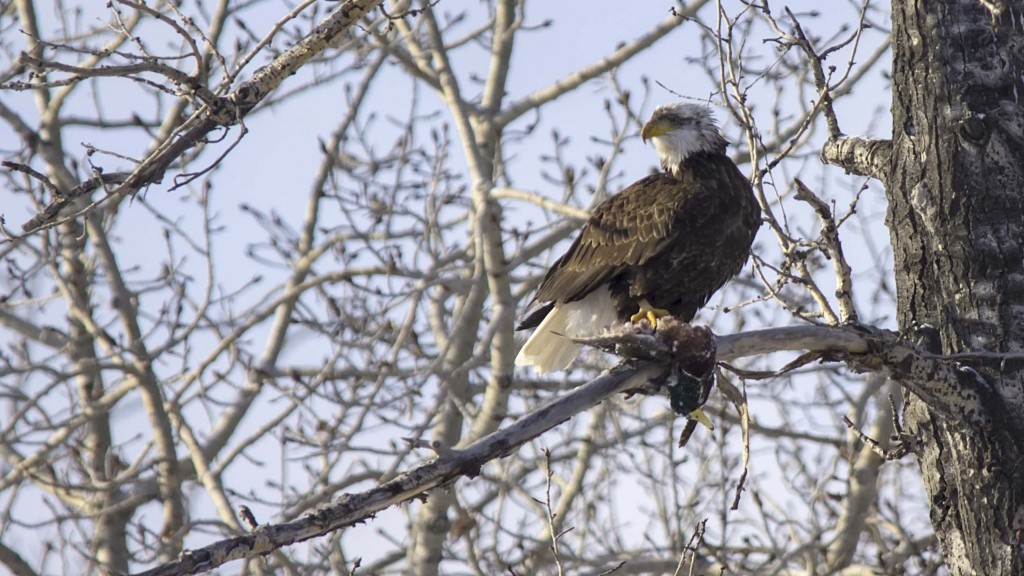
subadult Bald Eagle with Mallard for brunch
Pentax K-5 + Sigma 150-500@500mm
1/1000sec., ƒ/6.3, ISO 500
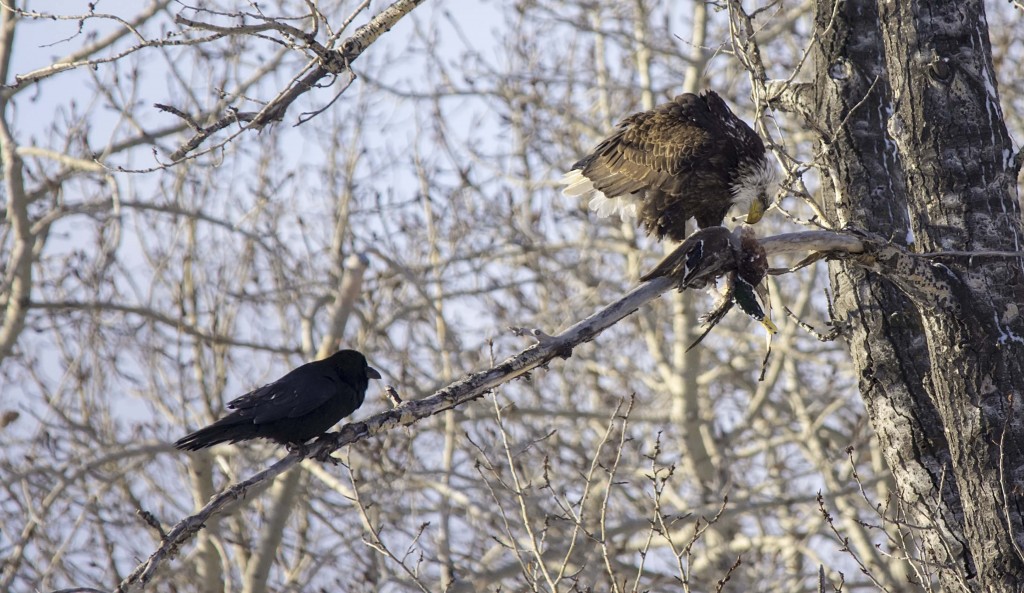
subadult Bald Eagle with Mallard for brunch (plus a harassing Common Raven)
Pentax K-5 + Sigma 150-500@500mm
1/1000sec., ƒ/6.3, ISO 800
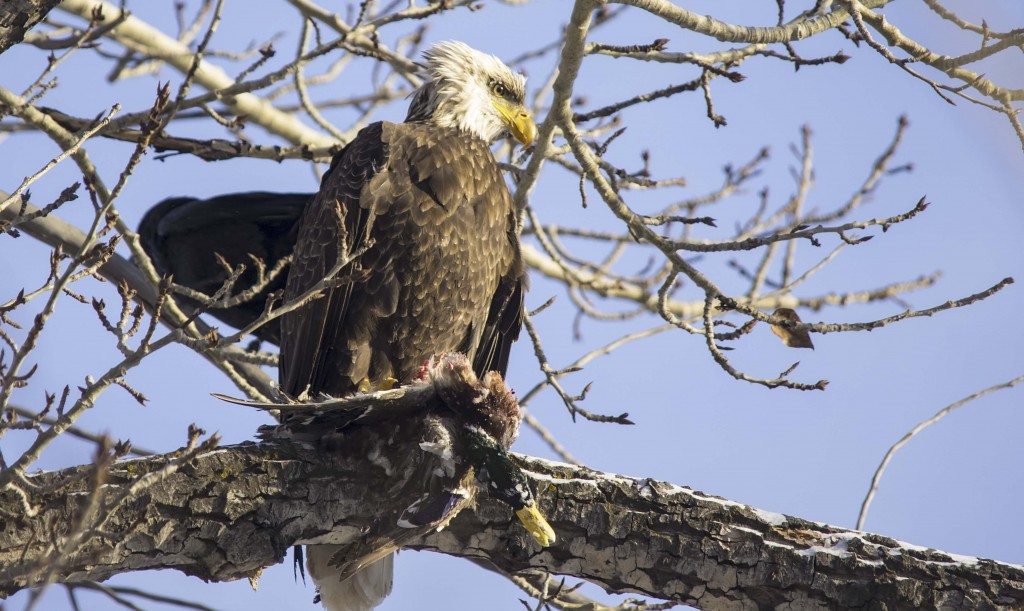
subadult Bald Eagle with Mallard for brunch (plus a harassing Common Raven)
Pentax K-5 + Sigma 150-500@500mm
1/1000sec., ƒ/6.3, ISO 800
A couple of Black-billed Magpies even came in for a piece of the action. Or maybe just a piece of the Mallard.
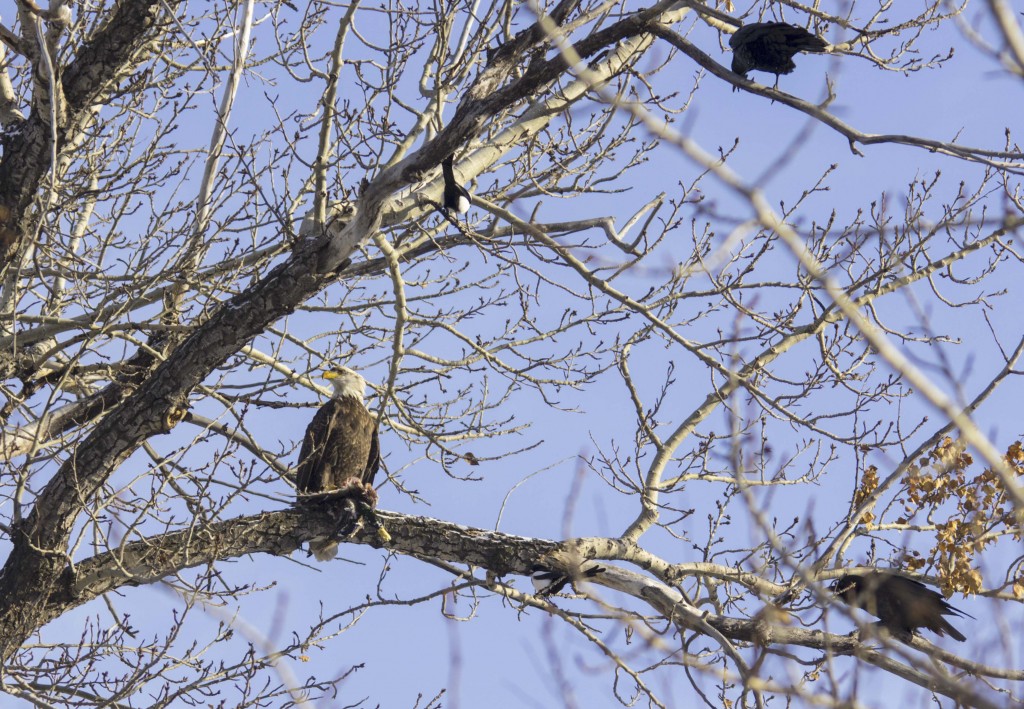
subadult Bald Eagle with Mallard for brunch (plus a few scavengers)
Pentax K-5 + Sigma 150-500@150mm
1/1000sec., ƒ/5.6, ISO 500
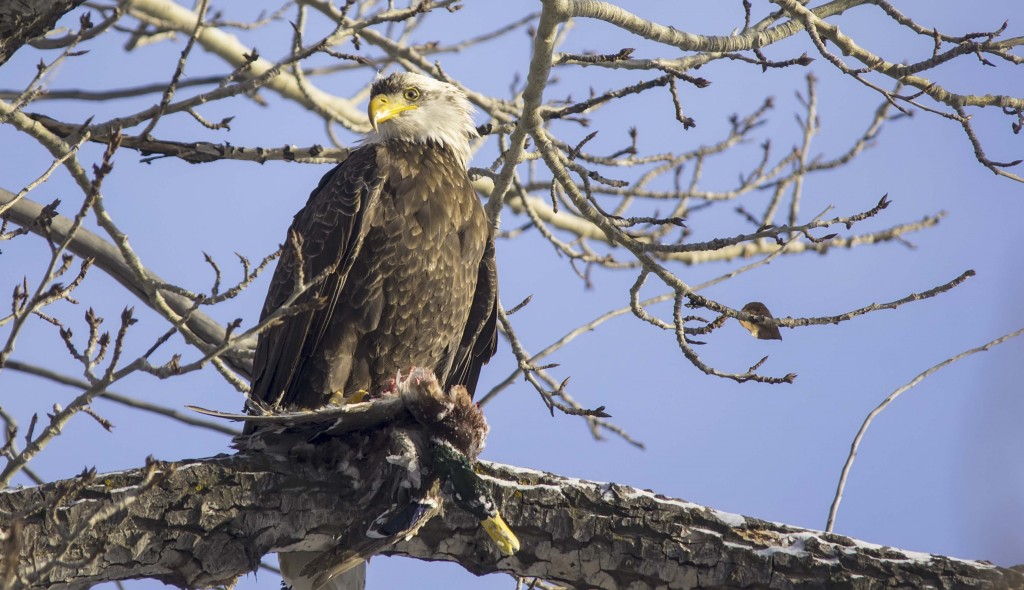
subadult Bald Eagle with Mallard for brunch
Pentax K-5 + Sigma 150-500@500mm
1/1000sec., ƒ/6.3, ISO 640
If there’s one thing I love most about winter birding in Calgary, I’d have to say that above the Snowy Owls, above the winter finches, and even above the odd vagrants we’re gifted with every couple of years, I certainly love seeing the influx of Bald Eagles the most. One of the groups this week in Beaverdam Flats recorded no less than ten (yes, 10) Bald Eagles in a single outing. While it’s not quite the same as the incredible numbers seen on both east and west coasts in the height of the season, it’s still an incredible treat to us landlocked city-slickers to have such unrestricted access to these regal and immensely powerful raptors.
That brings us to the end of our Autumn Birding Course for 2013. We’ll be picking back up in January again, but between now and then I’ll be sure to keep you all updated on the Christmas Bird Counts I’m taking part in, as well as the various travels that I happen to find myself on this holiday season!
Thanks again for reading, and good birding!
